
Toxicology FAQs
This section provides answers to frequently asked questions regarding the following toxicological issues. Topics below are provided by volunteer medical toxicologists for the purpose of public education, and do not necessarily represent the policies or positions of ACMT.
Acetaminophen | Anabolic Steroids | Aspirin | Automotive Products | Buprenorphine | Button Batteries | Carbon Monoxide | Chlorine | Clonidine | Cocaine | Designer Amphetamines | Detergent Pods | Dextromethorphan | Diphenhydramine | Energy Drinks | Ethylene Glycol | Heat Illness | Home Naloxone Use | Killer Bees | Magnets | Methadone | Methamphetamine | Mushrooms | Nicotine | NSAIDS | Oral Numbing Gels |Plants | Pesticides | Scorpions | Snakes | Spiders | Synthetic Cannabinoids

Acetaminophen
Authorship and Disclaimer
Created by Patrick Lank, MD. These answers are provided by volunteer medical toxicologists for the purpose of public education, and do not necessarily represent the policies or positions of the American College of Medical Toxicology.
All data and information provided in this FAQ is for informational purposes only. ACMT makes no representations as to accuracy, completeness, currentness, suitability, or validity of the content of the FAQ and will not be liable for any errors or omissions in this information or any losses, injuries, or damages arising from its display or use.
What is acetaminophen?
Acetaminophen is a pain-relieving (analgesic) and fever-treating (antipyretic) medication that can be obtained over-the-counter. Pharmaceutically it is a different kind of medication than other over-the-counter medications, such as ibuprofen and naproxen, which are also used to treat pain and fever. Acetaminophen is widely used for pediatric and adult fever and pain and comes in pill, liquid, injectable, and rectal suppository forms. Outside of the United States and Canada, acetaminophen is primarily known as “paracetamol” and is used for the same reasons.
Do other medications contain acetaminophen?
Acetaminophen is present in a very large number of over-the-counter and prescription medications. Over-the-counter medications used to treat generalized pain, arthritis, migraine headaches, sinus symptoms, cough and cold symptoms, allergies, fever, and flu symptoms, may contain varying amounts of acetaminophen. Additionally, prescription pain medications, such as Vicodin, Norco, Percocet, Tylenol #3, Fioricet, and Lortab all contain acetaminophen.
How much acetaminophen can I take?
Although the maximum daily dosage has become somewhat controversial in recent years, it is generally recommended to follow the dosing instructions on the package of medications purchased over-the-counter. For children, dosing for most medications is based on the child’s weight. The packaging may refer to dosing in terms of milligrams (mg) of medication per kilogram (kg) of a child’s weight. According to the Tylenol professional product monograph, “for adults and children 12 years of age and older, the recommended dose of acetaminophen is 650 to 1000mg every 4 to 6 hours as needed, not to exceed 4000mg in 24 hours… For children under 12 years of age, the recommended dose of acetaminophen is 10 to 15 mg/kg every 4 to 6 hours, not to exceed 5 doses (50 to 75 mg/kg) in 24 hours.” It should be noted that various concentrations of liquid acetaminophen for infants and children exist, so it is strongly recommended to read the dosing instructions very carefully and call your child’s doctor with any questions about acetaminophen dosing.
Is acetaminophen dangerous?
In appropriate dosing, such as is outlined on acetaminophen packaging, acetaminophen is one of the safest medications available, causing few side effects. However, when someone takes too much acetaminophen, it can cause severe medical problems. Acetaminophen overdose is a leading cause of liver failure in the United States and can lead to the need for liver transplant or in severe cases causes death.
What happens if someone takes too much acetaminophen?
In appropriate dosing, your body breaks down acetaminophen into chemicals that are primarily excreted in the urine. In an overdose, these methods of breaking down acetaminophen into non-toxic chemicals are overwhelmed, causing the build-up of a toxic product of acetaminophen called NAPQI. It is this chemical that causes severe liver injury.
Although most people that take too much acetaminophen will have some nausea or vomiting shortly after the overdose, some people will have no immediate symptoms. However, symptoms can develop 2 to 3 days later, at which time blood tests would reveal evidence of severe liver damage.
Acetaminophen overdose is best treated with a medication called n-acetylcysteine (NAC) if it is given within 8 hours of taking acetaminophen. However, NAC has been shown to be beneficial even after 8 hours. NAC has been shown to decrease the rates of liver transplantation and death among people with severe acetaminophen toxicity.
Are there any other safety facts I should know about acetaminophen?
Keep acetaminophen and all other medication out of the reach of children. Before giving acetaminophen to children, carefully read the dosing instructions or contact the child’s physician for advice. Speak with your doctor before taking acetaminophen if you have liver disease, kidney disease, or drink alcohol heavily.

Anabolic Steroids
Authorship and Disclaimer
Created by Scott Lucyk, MD. These answers are provided by volunteer medical toxicologists for the purpose of public education, and do not necessarily represent the policies or positions of the American College of Medical Toxicology.
All data and information provided in this FAQ is for informational purposes only. ACMT makes no representations as to accuracy, completeness, currentness, suitability, or validity of the content of the FAQ and will not be liable for any errors or omissions in this information or any losses, injuries, or damages arising from its display or use.
What are anabolic steroids and who uses them?
Anabolic steroids typically include testosterone and testosterone-like products. They are either the same as, or derivatives of, testosterone that is produced naturally in the body. They are often used by men, aged late teens to mid-thirties, to improve strength, performance, and body image (bodybuilders).
How are anabolic steroids taken?
They can either be ingested as pills, injected into muscle as liquid, or applied to skin as a cream.
Are there any approved medical uses for anabolic steroids?
Some men experience low testosterone levels either early or late in life and may be prescribed testosterone by their doctors. There are also “off-label” or non-approved uses for conditions including osteoporosis and to help with weight gain in patients who have severe wasting diseases such as cancer or HIV.
Are anabolic steroids illegal?
Possession of anabolic steroids or other substances used to make anabolic steroids without a prescription is a federal crime.
What are the complications of using anabolic steroids?
Many parts of the body are affected by anabolic steroids. Effects on different organs and systems may include the following:
Brain
Stroke
Blood clots
Heart
Enlarged heart
Heart attack
Decrease in “good” cholesterol
Sudden death
Liver
Bleeding around or within the liver; may lead to rupture of the liver’s blood vessels and death
Reproductive
Testicle shrinkage, decreased sperm counts
Development of breast tissue in males (“gynecomastia”)
Women may have irregular periods, breast atrophy, and development of male characteristics (male pattern hair growth, voice changes)
Musculoskeletal
Tendon and ligament rupture
Skin
Acne
Scarring from injection
Skin stretching (“striae”)
Infection
Skin or blood infection from injecting
Sharing needles may lead to HIV or Hepatitis B and C
Cancer
Testicular and prostate cancer
Associated with kidney and liver cancers
Psychiatric
Agitation, aggressiveness (“roid rage”)
Depression, anxiety, difficulty concentrating, difficulty sleeping
If I stop taking anabolic steroids, are there any long-term effects?
Yes. The effects on the heart and liver can be permanent despite stopping use. Breast tissue development in men is permanent. People may have decreased libido, fatigue, and muscle pain after stopping anabolic steroids.
How long are anabolic steroids detectable in the urine?
This may depend on several factors and varies from person to person. Anabolic steroids taken as pills may be detectable for several months, while they may be detectable for days to weeks if injected into muscle.
The History of Doping
The term “doping” refers to the use of prohibited medications, drugs, or treatments by athletes with the intention of improving athletic performance. The practice of doping by athletes dates back centuries. However it has recently received increased attention due to a wide variety of potential performance enhancing drugs that are now available, and also due to prominent cases of doping by elite athletes that have been reported in the media.
The idea of performance enhancement through drug therapies and diet can be traced back centuries to the time of the invention of sports. Individuals chosen to be athletes were fed specific diets and certain herbs and plants thought to improve physical power and performance. In 1904, doping was first noted at the Olympic Games in a runner who was injected with strychnine to assist with speed, and purportedly giving him the strength to finish the race.
Regulations
Despite the visible improvement in performance noted in countless athletes throughout several centuries, it was also noted that the athletes would often suffer adverse health effects and even premature death that seemed to be associated with the doping practices. These adverse outcomes and deaths lead to the first ban on doping by the International Association of Athletics Federation in 1928. This ban proved to be inadequate however, as the ability to test for banned substances was quite limited at that time. In 1967 the International Olympic Committee (IOC) banned doping, and in 1999 the IOC led the initiative to form the World Anti-Doping Agency (WADA). Today WADA forms the backbone of anti-doping laws and testing worldwide, and assists in setting the standard for other agencies and sports. WADA’s main activities include education of the health risks of doping, scientific research of doping practices, development of anti-doping capabilities, and development of testing methods for doping detection.
According to the World Anti-Doping Code, which was established by WADA in 2008, a substance or treatment constitutes doping if it meets two of the three following criteria:
• It enhances performance
• It presents a risk to the athlete’s health
• It is contrary to the spirit of the sport
This code consists of a yearly-published list of prohibited substances and treatment methods that athletes are not allowed to use. Various penalties can be enforced upon athletes found to be in violation of the Anti-Doping Code. Many athletes found in violation of the code have previously suffered punishments ranging from being stripped of Olympic medals or sports titles to lifetime bans from future competition in sport.
Methods and Goals of Doping
The goals of doping practices typically fall into four broad categories. These are substances that increase muscle mass, substances that decrease recovery time, substances that increase energy and/or endurance, and substances that mask the presence of other drugs. A few examples of substances and methods used in doping are noted below.
Anabolic Drugs (Anabolic Steroids)
Anabolic steroids have been prevalent in professional sports since they were first used in the 1950s in weight lifters. They have been used extensively in strength-based sports such as weight lifting, football, baseball and many other sports. Anabolic steroids are typically synthetic derivatives of testosterone. The goal of their use in doping is to increase muscle mass and lean body weight. These medications can be taken either orally or by injection, and many different forms are often taken simultaneously to maximize their desired effects. Users often take these drugs for their desired effects such as increased muscle strength and size, however many major and minor adverse health effects are related to their use. Relatively minor health effects such as skin infections, acne, irreversible gynecomastia (male development of breast tissue), and testicular shrinkage are well described with anabolic steroid use. Additionally severe and potentially life-threatening effects such as psychosis, bleeding around the liver, increased risk of heart attack, and sudden death has been associated with anabolic steroid use. Due to the many adverse health effects associated with anabolic steroid use, they are listed as controlled substances in the United States, are permanently listed on the World Anti-Doping Code, and are routinely tested for in elite athletes.
Stimulants
Stimulant drugs are composed of a large and diverse group of drugs, which when used for doping purposes have the intent to increase an athlete’s stamina, decrease their sensation of fatigue and pain, and improve their mental function and behavior. There are many well-known agents in this class including cocaine, amphetamines, and ephedrine. Amphetamines were initially desirable in athletes as they decreased the sensation of pain and fatigue. Amphetamines have been documented to have been used in many sports such as cycling, soccer and track and field, and were first noted in the Olympics of 1936. However, despite their widespread use, amphetamines were quickly found to be associated with many undesirable and sometimes life-threatening effects. Amphetamines have been linked with increased risk of seizures, heart attacks and sudden death along with many other effects, and therefore have been banned for use both in sport and also are illegal for personal use as well. Stimulant drugs are the second largest class of banned drugs on the WADA Anti-Doping Code, and are also routinely tested for in elite athletes
Hormones
The endocrine system is the system in the human body that produces and regulates hormones. Hormones are responsible for almost every bodily function including muscle development and growth. Several hormones have been discovered which function to increase protein production and therefore are involved in increasing muscle mass. Hormones such as insulin and human growth hormone (hGH) have been used by athletes in an attempt to increase muscle mass and definition. While some of these therapies have been successful previously, they are also associated with severe health effects such as low blood sugar, fluid overload and limb swelling, overgrowth of bone and heart attacks. Due to these and many other dangerous health effects, these substances are also listed on the Anti-Doping Code.
Oxygen Transport (“Blood Doping”)
Lastly, athletes may try to improve their performance in sport by increasing the amount of oxygen in their bloodstream. As oxygen one of the basic nutrients for all cells, increased oxygen delivery to tissues can improve endurance and athletic performance. Athletes have attempted to achieve this goal in many ways. Some athletes will have their own blood drawn months in advance of a competition, only to be re-transfused into the same athlete just prior to the competition to increase their blood volume and the amount of oxygen in that blood during the competition. Other athletes have used certain medications such as erythropoietin, that work to increase the body’s production of red blood cells, which carry oxygen to the cells. Overall, increased red blood cell volume ensures increased oxygen delivery to cells, and likely improved endurance. However, the body is quite sensitive to such changes, and as the volume of blood increases, the blood thickens, increasing the risk of high blood pressure, strokes, heart attacks, and sudden death.
Summary
Hundreds of drugs and methods have been used in doping for the purpose of sports performance enhancement. While this practice has been around for centuries, it is still prevalent in sports competitions at all levels. While many methods are associated with increased performance, almost all methods are deleterious to the athlete’s health in some manner. Regulations and testing by many agencies, including WADA and the IOC aim to decrease the incidence of doping and eliminate its use in sport. However, given the importance placed on athletic achievement, the fame awarded to elite athletes in today’s culture, and the rapid development of new performance enhancing therapies, it is likely that doping will be a problem that will continue for many years to come.

Aspirin
Authorship and Disclaimer
Created by Kevin Maskell, MD. These answers are provided by volunteer medical toxicologists for the purpose of public education, and do not necessarily represent the policies or positions of the American College of Medical Toxicology.
All data and information provided in this FAQ is for informational purposes only. ACMT makes no representations as to accuracy, completeness, currentness, suitability, or validity of the content of the FAQ and will not be liable for any errors or omissions in this information or any losses, injuries, or damages arising from its display or use.
What is aspirin?
Aspirin is a pain relieving (analgesic), fever-treating (antipyretic), and anti-inflammatory medicine. It also has effects on the cells that cause blood to clot (anti-platelet) and is commonly used to help prevent heart attacks and strokes. It is closely related to the other non-steroidal anti-inflammatory (NSAID) medicines such as ibuprofen, naproxen, and meloxicam.
Do other medicines contain aspirin?
Several combination products that include aspirin are available. Typically these are headache medicines such as Fiorinal® and some formulations of Excedrin®.
How much aspirin is too much?
You should always follow your doctor’s instructions or the package directions when determining the appropriate dose of a medicine, especially aspirin. Usual doses range anywhere from 81 mg per day to 650 mg four times per day, depending on what the aspirin is being given for. If you have questions you should discuss your aspirin dose with your primary care physician or pharmacist.
Is aspirin dangerous?
When taken in the recommended doses, aspirin is typically very safe, though it can irritate the stomach and lead to ulcers and bleeding. In large overdoses aspirin can cause issues ranging from ringing in the ears to very serious medical problems such as kidney injury and even death.
What happens when someone takes too much aspirin?
In normal doses, your body excretes aspirin into the urine fairly quickly. Large overdoses overwhelm this process, allowing the aspirin to build up in your blood, kidneys, and brain. Symptoms can include nausea/vomiting, ringing in the ears, and rapid/deep breathing.
At the hospital, treatments for taking too much aspirin include specific types of IV fluids and treatment with oral medications to help prevent the body from absorbing more aspirin. Severe or life threatening cases may be treated with dialysis.
Can I give aspirin to my child?
Aspirin is typically NOT recommended for children, especially children with potential viral illnesses such as chicken pox, flu, or the common cold. Aspirin may be recommended or prescribed by your pediatrician for certain very rare or unusual conditions. In these cases you should follow their directions on appropriate doses very carefully.
Can I take aspirin if I’m pregnant?
In general, medicines other than aspirin should be considered for treating pain or headaches during pregnancy. Aspirin is known to cross into the fetus’ blood, and has been associated with certain complications in newborns when taken close to the time of delivery. Low doses of aspirin are occasionally used in a variety of different medical conditions in pregnancy. If you have specific questions about aspirin during pregnancy, you should discuss them with your primary obstetrician.
What should I do if someone takes too much aspirin?
Contact your local poison control center at 1-800-222-1222. They will help you determine if the person needs to be seen in a hospital or not based on factors such as how much they may have taken and whether they took it to try to hurt themselves. Other home based treatments, such as trying to make the person vomit, are generally not recommended and should not be tried unless directed to by a medical professional.

Automotive Products
Authorship and Disclaimer
Created by Ross Sullivan, MD. These answers are provided by volunteer medical toxicologists for the purpose of public education, and do not necessarily represent the policies or positions of the American College of Medical Toxicology.
All data and information provided in this FAQ is for informational purposes only. ACMT makes no representations as to accuracy, completeness, currentness, suitability, or validity of the content of the FAQ and will not be liable for any errors or omissions in this information or any losses, injuries, or damages arising from its display or use.
How can automotive products be dangerous?
Automotive products are ubiquitous and commonly stored in garages, sheds and basements. Some of these products are dangerous when inhaled, swallowed or splashed onto the skin or into the eyes.
What can happen if someone is exposed to automotive products?
If accidentally ingested, many of these compounds may result in gastrointestinal symptoms such as nausea, vomiting, abdominal pain and cramps. Caustic compounds, such as some cleaning agents, may directly damage the lining of the gastrointestinal tract and lead to bleeding, swelling and perforation of the bowel. Other chemicals, such as antifreeze and windshield washer solution are also absorbed and may lead to damage to the kidneys, brain or eyes. Aspiration, which is the passage of fluid into the lungs, may occur when accidentally swallowing one of these products, or if they are vomited. This is especially a risk with fuels and solvents. This may result in chemical pneumonia. Other dangers include direct splash to the eyes with irritation, burns and corneal scarring. Excessive skin exposure may lead to excessive drying of the skin, chapped skin and irritation. More caustic products may also cause painful burns.
What are some of the more dangerous automotive products?
Automotive products contain many different products and chemicals. Below is a list of some of the more dangerous products. This is not a complete list:
- Coolants/ Antifreeze- Ethylene glycol is the most common automotive antifreeze. Ethylene glycol is highly toxic, even in small amounts, and may result in coma, kidney and central nervous system injury. Untreated ethylene glycol ingestion may cause death. Propylene glycol antifreeze, antifreeze marketed as non-toxic or “safety-freeze”, is not as dangerous as ethylene glycol but may also result in sedation and coma.
- Brake Fluid- Brake fluid components include diethylene glycol and glycol ethers. Diethylene glycol is highly toxic and ingestion may result in irreversible nervous system and kidney damage. Glycol ethers may also result in significant toxicity.
- Windshield washer solution and gas line antifreeze often contain methanol. Methanol is a toxic alcohol that can cause irreversible visual loss or brain damage.
- Wheel cleaners- Ammonium bifluoride and hydrogen fluoride are found in some wheel cleaners. These are very dangerous chemicals that may result in very painful burns to the skin if appropriate gloves and other skin protection are not used. One of the dangers of these chemicals is that they may not initially be painful, with pain and skin changes only developing hours later. Accidental ingestion of these chemicals is extremely dangerous and can cause damage to the lining of the esophagus and stomach as well as lethal cardiac arrhythmias.
- Fuels- Inhalation of gasoline and other fuels can cause incoordination, feelings of intoxication, depressed consciousness and even passing out. Aspiration of gasoline and other fuels may result in severe lung injury. The risk associated with induced vomiting is greater than the risk of allowing the fuel to pass through the GI tract. With some fuel additives such as gas line antifreeze and gas line cleaner other components of the product may be of greater risk than the fuel itself and should be reviewed with your physician or Poison Control. Fuels also pose a fire and explosive risk if vapors are allowed to accumulate in a poorly ventilated space.
- Motor Oil- Accidental ingestions of motor oil are usually of low risk beyond the risk of aspiration from vomiting. – Car waxes/liquid car wash solutions- These products are mostly safe and minimally toxic. Some car wash powders may be more dangerous, with the potential for irritation and burns to the digestive tract if ingested.
What can I do if someone is exposed?
Remove the person or yourself from the source to a well ventilated area.
If ingestion has occurred, do not make the person vomit as some of these products may cause lung injury with vomiting.
Wiping out the inside of the mouth may decrease some exposure if a thicker liquid is swallowed or in the mouth.
With a skin exposure, copious soap and water should be used to clean the area.
Contact your local poison center, 800-222-1222. Have the exact name of the product handy when you call. Many products have multiple formulations and the exact product name will assist the poison information specialist in the evaluation of the exposure.
If you are unable to contact a poison center seek prompt evaluation at the nearest hospital emergency department.
How can I keep my family safe?
PREVENTION is the key to a safe home and community. Understanding that automotive products can be very dangerous is the first step.
Do not keep products you do not expect to use. These should be disposed of properly. Your local waste management / recycling facility should be able to assist.
Tragic accidental exposures have occurred from the storage of these products in unmarked containers, often jars or used drinking containers. Store automotive products in their original containers, and in a cool, well ventilated area.
Products should be stored in an area safe from curious young children and in secure containers. Do not pour automotive products down storm drains or on the ground. This can cause contamination of soil and water. Contact your local government for alternatives, as many communities have programs established to help residents properly and safely dispose of hazardous materials and liquids from the home.
Do not smoke around automotive products.

Buprenorphine
Authorship and Disclaimer
Created by Gillian Beauchamp, MD. These answers are provided by volunteer medical toxicologists for the purpose of public education, and do not necessarily represent the policies or positions of the American College of Medical Toxicology.
All data and information provided in this FAQ is for informational purposes only. ACMT makes no representations as to accuracy, completeness, currentness, suitability, or validity of the content of the FAQ and will not be liable for any errors or omissions in this information or any losses, injuries, or damages arising from its display or use.
What is buprenorphine?
Buprenorphine is a prescription medicine used to treat addiction to opioids, which are a group of drugs similar to morphine. It is prescribed by specially trained doctors who provide what is called ‘maintenance therapy’ for patients being treated for addiction to pain pills, heroin or other opioids. Buprenorphine is usually taken by placing the tablet or film under the tongue. Some buprenorphine tablets or films contain naloxone, which is a medication that reverses the dangerous side effects of too much buprenorphine.
Can buprenorphine be abused?
Buprenorphine can cause sleepiness and can be abused in individuals who are seeking this effect. Some individuals may abuse buprenorphine by taking extra doses, or by crushing tablets and then injecting or snorting them. At high doses, the effects of buprenorphine reach a ‘ceiling effect’ which means taking more buprenorphine will not result in more effects. In fact, if a person who is used to taking high doses of opioids such as heroin, methadone, morphine, or oxycodone, takes buprenorphine, they may actually experience side effects of ‘withdrawal’ such as feeling irritable, nausea, vomiting, diarrhea, sweating, shaking and a fast heart rate.
What happens if I take too much buprenorphine?
Taking too much buprenorphine can cause sleepiness, a dangerously slow rate of breathing, and low blood pressure. Slow breathing and low blood pressure can lead to passing out or even death. Rarely, kidney or liver failure can occur with severe poisoning.
What happens if a child accidentally takes buprenorphine?
Buprenorphine is extremely dangerous for children. If a child eats even a part of a pill, he or she may die from stopping breathing or low blood pressure. Buprenorphine must be kept out of reach of children at all times. If a child may have accidentally eaten buprenorphine, that child must be taken to an emergency department immediately.
What are the side effects of buprenorphine?
Other side effects of taking buprenorphine include feeling sleepy or lightheaded, nausea, constipation and abdominal pain.
What is the treatment for buprenorphine poisoning?
An individual who has taken too much buprenorphine, or a child who has taken even part of a buprenorphine pill, may need to be treated with oxygen, artificial breathing, and a medication called naloxone which can reverse the effects of the buprenorphine. Patients with low blood pressure might need intravenous fluids and strong heart medications to keep the heart beating regularly and to keep the blood pressure normal. All children who may have eaten buprenorphine, and adults with symptoms of poisoning will need to stay in the hospital.
If I stop taking buprenorphine, are there side effects?
If a person who is used to taking buprenorphine every day stops taking this medication, side effects can include feeling irritable, nausea, vomiting, diarrhea, sweating, shaking and a fast heart rate. If a person wishes to stop taking buprenorphine it is best to have a healthcare professional help.
Is buprenorphine detectable in the urine?
Only drug tests that specifically look for buprenorphine will detect this drug in the urine. People who are taking buprenorphine will not have positive drug tests for other opioids such as methadone, oxycodone, hydrocodone or heroin.
Does buprenorphine interact with other medications?
Buprenorphine can interact with other medications a person is taking. Medicines used to treat psychiatric disease such as depression or anxiety, and pain medicines, can be dangerous to take at the same time as buprenorphine. It is important to talk to a healthcare provider before starting or stopping any medication and to find out if it is okay to take medications in combination.

Button Batteries
Authorship and Disclaimer
Created by Louise Kao, MD. These answers are provided by volunteer medical toxicologists for the purpose of public education, and do not necessarily represent the policies or positions of the American College of Medical Toxicology.
All data and information provided in this FAQ is for informational purposes only. ACMT makes no representations as to accuracy, completeness, currentness, suitability, or validity of the content of the FAQ and will not be liable for any errors or omissions in this information or any losses, injuries, or damages arising from its display or use.
What are button batteries?
Button batteries are small round batteries such as those found in a hearing aid, calculator, watch, or camera. Many electronic children’s toys and books contain these batteries as well. They range in size from 5-20 mm and are generally about 1-3 mm thick.
Why are button batteries dangerous?
Most swallowed batteries pass through the system without causing harm. However, when swallowed, button batteries can become lodged or stuck before reaching the stomach and cause burns. These burns can result in injury within 2 hours and have resulted in serious complications and deaths. 20 mm Lithium cells in particular (such as CR 2032) have been involved in many of the most severe injuries likely due to their higher voltage. Injuries from swallowed button batteries in children have increased in recent years.
Injury may also result if the button battery is lodged in the nose or ear.
What should I do if my child has swallowed a button battery?
If your child has swallowed a button battery or one has become lodged in the nose or ear, bring the child to a health care facility for further management. The health care provider can determine the most appropriate further treatment.
Do not induce vomiting and do not allow the child to eat or drink until evaluated by a health care provider.
For more information or advice, you may contact your local Poison Control Center at 1-800-222-1222 or the National Button Battery Ingestion Hotline at 1-800-498-8666, both of which are open 24 hours/7 days a week.
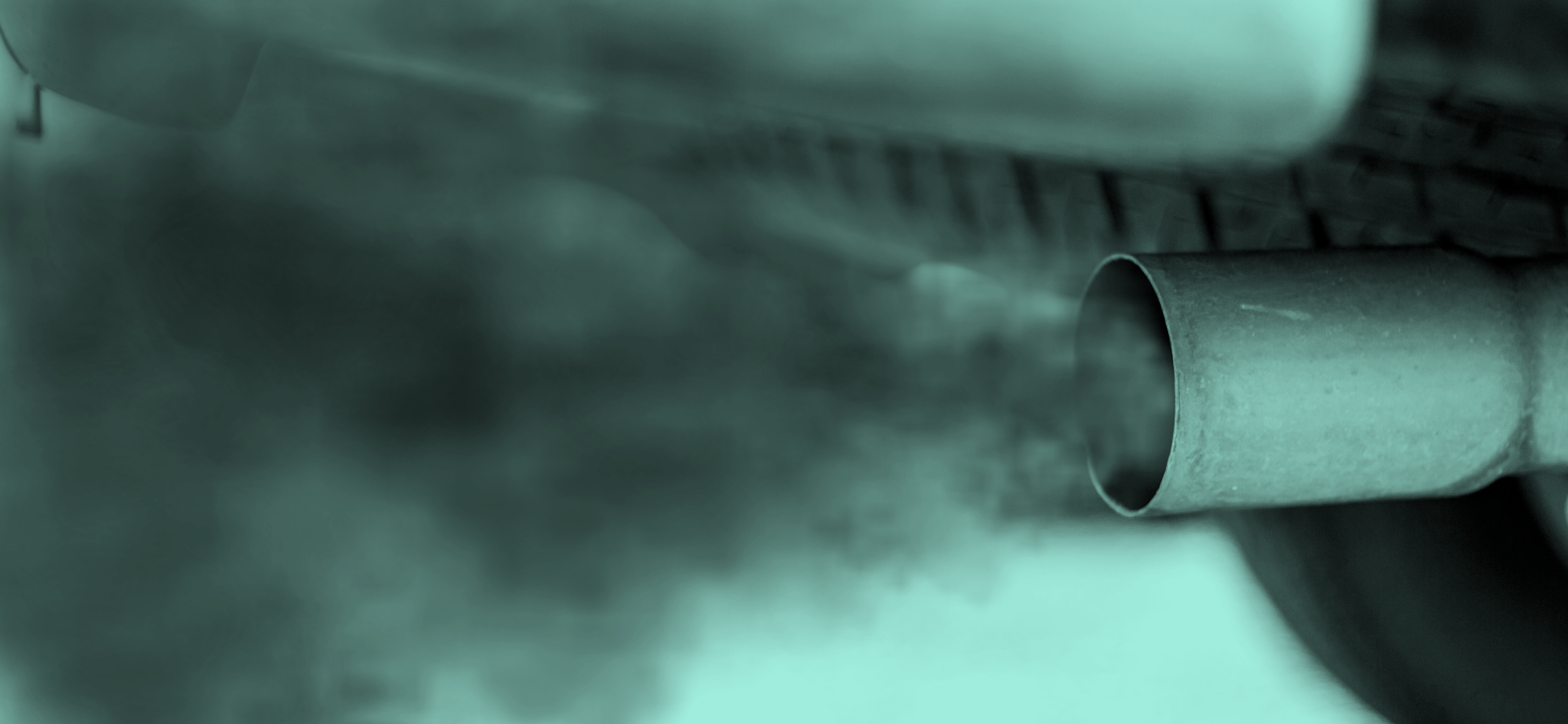
Carbon Monoxide
Authorship and Disclaimer
Created by Kathy Kopec, DO. These answers are provided by volunteer medical toxicologists for the purpose of public education, and do not necessarily represent the policies or positions of the American College of Medical Toxicology.
All data and information provided in this FAQ is for informational purposes only. ACMT makes no representations as to accuracy, completeness, currentness, suitability, or validity of the content of the FAQ and will not be liable for any errors or omissions in this information or any losses, injuries, or damages arising from its display or use.
What is carbon monoxide?
Carbon monoxide (CO) is an odorless, tasteless, colorless gas that is formed from the incomplete combustion of most carbon containing compounds. Since exposure to CO does not produce warning signs, such as burning of the eyes or a cough, you will not notice if CO is present in your environment. Carbon monoxide is extremely difficult to detect without an appropriate detector. It is readily absorbed when it is inhaled and causes illness by preventing blood cells from delivering enough oxygen to the body.
What are the most common sources of exposure to carbon monoxide?
The most common sources of CO are exhaust systems, furnaces, water heaters, kerosene space heaters, boat engines, cigarette smoke, gasoline or diesel powered generators, and fireplaces. It is more common for CO exposures to occur in the winter months or following natural disasters. Carbon monoxide poisoning often occurs following the first few cold days of the fall or winter when people are turning on their heaters for the first time that season.
What are the signs and symptoms of carbon monoxide exposure?
Early CO poisoning presents with a variety of nonspecific symptoms, which are often confused with a viral syndrome. Symptoms of CO poisoning include headaches, nausea, vomiting, dizziness, and chest pain. As the level of CO in the body increases, abnormal heart rhythms, decreased oxygen delivery to the heart, loss of consciousness, vision changes, difficulty walking, and confusion can develop. Some people may experience persistent or delayed effects of CO poisoning, such as difficulty concentrating, problems with walking and balance, and vision changes. Delayed effects usually develop within 30 days of CO exposure and are most commonly associated with a loss of consciousness at the time of the initial exposure.
What should I do if I think I have been exposed?
If you think you have been exposed to carbon monoxide you should call 911 or the fire department to have the level of CO in your home checked and you should go to the emergency department. You should not go back into the area of possible exposure until you know the level of CO is within the safe range.
What is the treatment for carbon monoxide exposure?
If you are seen in the emergency department for a possible carbon monoxide exposure, the doctor will draw your blood and check a carboxyhemoglobin (COHb) level. Normal levels of COHb in non-smokers range from 0-5%. Smokers can have COHb levels ranging from 2-10%. The initial treatment for carbon monoxide poisoning is 100% oxygen delivered by a face mask. Other tests and treatments provided will depend on your symptoms and other medical history. There is conflicting evidence on using hyperbaric oxygen to treat severe carbon monoxide exposures at this time.
How can I protect my family from carbon monoxide poisoning?
You should install a carbon monoxide detector in your home. It is also advised that you do not place grills or gasoline/diesel run generators inside an enclosed space, such as your home.
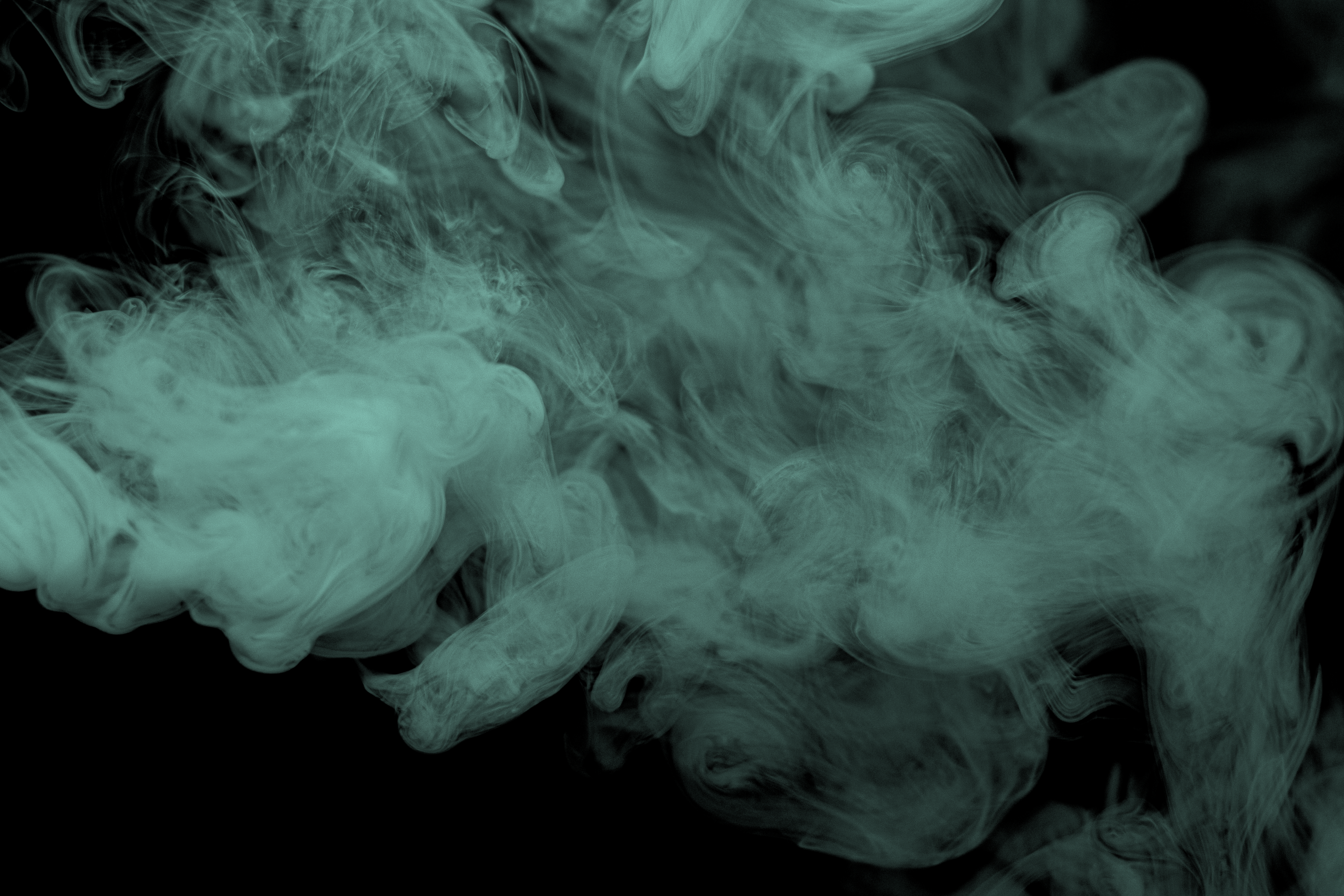
Chlorine
Authorship and Disclaimer
Created by Kevin Maskell, MD. These answers are provided by volunteer medical toxicologists for the purpose of public education, and do not necessarily represent the policies or positions of the American College of Medical Toxicology.
All data and information provided in this FAQ is for informational purposes only. ACMT makes no representations as to accuracy, completeness, currentness, suitability, or validity of the content of the FAQ and will not be liable for any errors or omissions in this information or any losses, injuries, or damages arising from its display or use.
What is chlorine?
Chlorine is an element found frequently in nature. By itself, it is usually found as chlorine gas (Cl2). It can also be found in a variety of common chemicals, from table salt (sodium chloride) to household bleach (sodium hypochlorite) to hydrochloric acid (hydrogen chloride). Chlorine and the closely related chloramine gas can also be accidentally formed when cleaners like ammonia and bleach are mixed together.
What is chlorine used for?
Chlorine has a variety of uses in industry and chemistry. It can be found in processes to make paper, solvents, insecticides, paints, medicines, plastics, and textiles. It is also used to purify water supplies and pools.
Is chlorine gas harmful?
At significant concentrations, yes. Chlorine gas will react with the water in human tissues to form hydrochloric acid, which is very irritating to the airways, lungs, and eyes.
What are the signs of a chlorine gas exposure?
Chlorine is very irritating to the throat and lungs and will cause a burning sensation with coughing and difficulty breathing. Chlorine gas can also be irritating to the eyes.
Are there long term effects from chlorine gas exposures?
The long term effects from a single exposure are related to the duration of the exposure and its severity. Some people will continue to experience a persistent cough and chest tightness, potentially even for years.
What should I do if I think I have been exposed to chlorine gas?
The most important thing you can do is to get out of the area immediately and to a safe place with fresh air. If the burning feeling and difficulty breathing do not resolve right away, you should seek medical attention immediately.
Can chlorine gas exposure be treated?
Many chlorine gas exposures will improve on their own once the person is removed from the situation and able to breath clean air again. Moderate cases may need medical attention including breathing treatments similar to those given for asthma. In the most severe cases, serious airway and lung injuries can occur and patients may need to be placed on a ventilator (breathing machine) to help keep them alive while their body heals.

Clonidine
Authorship and Disclaimer
Created by Dan McCabe, MD, and Sean M, Bryant, MD. These answers are provided by volunteer medical toxicologists for the purpose of public education, and do not necessarily represent the policies or positions of the American College of Medical Toxicology.
All data and information provided in this FAQ is for informational purposes only. ACMT makes no representations as to accuracy, completeness, currentness, suitability, or validity of the content of the FAQ and will not be liable for any errors or omissions in this information or any losses, injuries, or damages arising from its display or use.
What is clonidine?
Clonidine is a medication primarily prescribed to treat high blood pressure. It acts within the brain to decrease the amount of adrenaline released. With decreased adrenaline available, blood pressure will decrease.
Why is clonidine prescribed?
The only FDA approved reason for clonidine use is to treat high blood pressure.
In addition, some doctors will prescribe clonidine to treat withdrawal symptoms from heroin, methadone, other opioids, and nicotine. It has occasionally been used to treat Tourette syndrome, attention deficit hyperactivity disorder, and for severe pain management in some patients that is not relieved by standard pain medications.
In what form can clonidine be used?
Clonidine can be administered as a tablet (immediate or extended release), transdermal patch, or epidural injection.
What are the side effects of clonidine?
The most common side effects include sedation, sleepiness, headaches, low blood pressure, and slow heart rate.
If I stop taking clonidine, are there side effects?
When a person abruptly stops taking clonidine, they may experience an increase in blood pressure higher than baseline referred to as “rebound hypertension.” Nervousness, agitation, headache, or tremor may also occur. To reduce or prevent these symptoms, health care providers may gradually decrease the dose of clonidine over several days.
What happens if I take too much clonidine?
Clonidine can cause an unsafe drop in blood pressure or heart rate when too much is taken. In overdose it can also cause deep sedation and affect the ability to breathe normally.
What is the treatment for clonidine poisoning?
There is no antidote for clonidine poisoning. If someone has taken too much clonidine they may need to be treated in a hospital with medications to increase the blood pressure and heart rate. In severe cases they may need to be placed on a breathing machine until the effects of the clonidine wear off.
Does clonidine interact with other medications?
When combined with other medications that cause low heart rate, low blood pressure, or sleepiness, the effects of clonidine may be increased. It is always important to tell a healthcare provider about all medications that are being taken.
Excessive sedation or lethargy can occur in overdose or when combined with alcohol, marijuana, or narcotics.

Cocaine
Authorship and Disclaimer
Created by Philip W. Moore, DO. These answers are provided by volunteer medical toxicologists for the purpose of public education, and do not necessarily represent the policies or positions of the American College of Medical Toxicology.
All data and information provided in this FAQ is for informational purposes only. ACMT makes no representations as to accuracy, completeness, currentness, suitability, or validity of the content of the FAQ and will not be liable for any errors or omissions in this information or any losses, injuries, or damages arising from its display or use.
What is cocaine?
Cocaine is a stimulant prepared from the leaves of the erythroxylon coca plant, grown most commonly in Peru or Columbia.
Are there other names for cocaine?
Other names for cocaine include coke, crack, blow, snow and nose candy.
How is cocaine used?
Cocaine can be used by insertion into the nose (also called snorting), smoking, injection into a vein (also called banging or mainlining), swallowing, and by insertion into the rectum (also called a butt rocket or plugging) or vagina.
Are there any medical uses for cocaine?
Cocaine is still used by some physicians to stop nosebleeds, and for pain control before minor nose surgery. Dentists or oral surgeons can also use cocaine for anesthesia before procedures.
What are the signs of cocaine intoxication?
Cocaine produces decreased appetite, difficulty sleeping, euphoria (feeling happy) and enhanced energy and alertness. Persons with cocaine intoxication may have large pupils, high blood pressure, and an elevated heart rate.
What are the signs of cocaine poisoning?
Cocaine toxicity can cause agitation, aggressive behavior, hostility, hallucinations, seizures, fevers, and death.
What are the medical complications of cocaine?
Cocaine causes many adverse effects to many organ systems. Some complications are dependent on the route of exposure.
- Bones
- Cocaine, when inserted in the nose (snorted) can cause breakdown of the cartilage and bones in and around the nose creating holes in the septum (the septum separates the nostrils).
- Brain and nerves
- Cocaine use can cause difficulty walking, headache, seizures, spontaneous bleeding, stroke, temporary or permanent memory and attention problems, and tremors. Intranasal (in the nose) users can lose their sense of smell and suffer from frequent nosebleeds. Intravenous (in the veins) users are at risk for infections that can be located in the brain in addition to other areas of the body.
- Gastrointestinal
- Cocaine can cause severe abdominal pain, bloody diarrhea, nausea and vomiting. Intravenous users are at increased risk for viral hepatitis if they use contaminated needles.
- Heart
- Cocaine can cause chest pain, high blood pressure, fast or abnormal heart rate, heart attack, problems with heart muscle contraction and rupture of the aorta (main blood vessel from the heart). Intravenous users are at increased risk for infections of the heart and its valves.
- Lung
- People who smoke cocaine can have shortness of breath and fluid or bleeding in the lung. They can rupture the lung, which results in air leaking into the chest.
- Kidney
- Cocaine can cause kidney damage
- Muscles
- Cocaine can cause severe muscle damage and pain.
- Cocaine use during pregnancy
- Cocaine use is associated with premature delivery, vaginal bleeding, sudden death, and birth defects.
Are there any permanent effects of cocaine?
Long-term use of cocaine can damage nerves and deplete important chemicals in the brain such as dopamine. There can be a loss of memory and concentration, depression, delusions, hallucinations, paranoia, and aggressive or agitated behavior.
Is cocaine addictive?
Yes. There are several properties of cocaine that contribute to its addiction potential: first, cocaine has many effective methods of delivery. Second, the more rapid the onset of cocaine’s effect, the higher the addictive potential (most rapid onset is smoking and injecting into a vein). Third, cocaine has a short half-life; it is broken-down by the body quickly. Considering all of these properties, drugs with a fast rapid onset and fast metabolism will have a high addictive and abuse potential.
What is the difference between crack and cocaine?
Crack is made from cocaine mixed with common household items such as ammonia or baking soda. Crack has different melting and vaporizing properties than cocaine, and is more stable for smoking.
How long can cocaine be detected in the urine?
Chemicals from the break-down of cocaine can be detected in the urine for 24 to 48 hours. In habitual users, these chemicals can be detected longer.

Designer Amphetamines
Authorship and Disclaimer
Created by Paul Stromberg, MD. These answers are provided by volunteer medical toxicologists for the purpose of public education, and do not necessarily represent the policies or positions of the American College of Medical Toxicology.
All data and information provided in this FAQ is for informational purposes only. ACMT makes no representations as to accuracy, completeness, currentness, suitability, or validity of the content of the FAQ and will not be liable for any errors or omissions in this information or any losses, injuries, or damages arising from its display or use.
What is a designer amphetamine?
The term ‘designer amphetamine’ is often used to describe synthetic chemicals that are derived from amphetamine or methamphetamine. Designer amphetamines, like other designer drugs, are often created to avoid regulation by existing drug laws.
What are some examples of designer amphetamines?
MDMA (methylenedioxymethamphetamine, commonly known as ecstasy) is the most well-known designer amphetamine. Other examples include, but are not limited to, MDEA (commonly known as ‘Eve’), MDA, 2-CB, and 25-I.
What are the effects of designer amphetamines compared to amphetamines?
Designer amphetamines produce many of the same effects as amphetamine. They can increase attention, cause anxiety, increase blood pressure and raise heart rate. Designer amphetamines may also produce some different effects based on their particular structure. Designer amphetamines often produce more psychedelic effects with altered perceptions and hallucinations.
Are designer amphetamines safer than amphetamines?
No. Use and overuse of any amphetamine-like substance can lead to serious short-term or long-term medical problems.
Are designer amphetamines the same as “bath salts”?
The term ‘bath salts’ is used to describe a large variety of synthetic drugs. Although many bath salts are derived from a naturally-occurring amphetamine-like compound found in the Khat plant, it is difficult to predict what substances will be found in any product labeled ‘bath salts’. People who are exposed to bath salts exhibit similar effects as those who are exposed to methamphetamine or designer amphetamines.
How are designer amphetamine patients cared for in a hospital?
This depends on the severity of their illness. Treatment often involves sedation with medications, and in the most severe cases patients may require admission to an intensive care unit and be placed on a ventilator and receive other life-supporting treatments.
What are some serious health effects that can come from taking designer amphetamines?
Extreme elevation of temperature can occur which can cause many different organs to shut down (brain, heart, liver, kidney, muscle). MDMA can also cause abnormally low sodium levels which can result in confusion and seizures. Being under the influence of these substances can result in poor coordination or taking unnecessary risks that lead to serious trauma or injury.
Can I cause permanent damage to my brain by taking designer amphetamines?
The long-term effects of using designer amphetamines are not completely understood, though it appears that repeated use of MDMA may result in problems with memory and brain function.

Detergent Pods
Authorship and Disclaimer
Created by Muhammed Ershad, MD. These answers are provided by volunteer medical toxicologists for the purpose of public education, and do not necessarily represent the policies or positions of the American College of Medical Toxicology.
All data and information provided in this FAQ is for informational purposes only. ACMT makes no representations as to accuracy, completeness, currentness, suitability, or validity of the content of the FAQ and will not be liable for any errors or omissions in this information or any losses, injuries, or damages arising from its display or use.
What are detergent pods?
Detergent pods, also known by the names “liquid laundry detergent capsules” or “laundry packets” are capsules containing concentrated forms of liquid detergent. They are marketed from many manufacturers for their ease of use and quick solubility when exposed to water. They come in various forms of packaging and colors.
Why are they dangerous to children?
Detergent pods are sold in flashy attractive colors and shapes, giving them the appearance of candies or small toys. This can put younger children at more risk, especially those less than three years of age who explore things with their mouth, out of curiosity or at times of teething.
Detergent pods have an extremely concentrated liquid detergent wrapped in a water-soluble polyvinyl alcohol membrane. The detergent is released from the membrane when it contacts moisture or is chewed or broken open. This membrane is very fragile and breaks open easily from the slightest pressure or very little moisture. When released, the detergent contents are caustic and can result in chemical burns. In addition to the caustic detergent, these pods often contain various alcohols which are toxic when absorbed into the blood stream.
When ingested, detergent pods can cause chemical burns to the mouth, airway, food pipe, stomach, and bowels. In addition, ingestion can lead to absorption of the various alcohols which may cause lethargy and metabolic acidosis in severe cases.
Topical exposure of a ruptured detergent pod may cause chemical burns to the eyes and skin. Eyes are particularly sensitive to the chemical irritation of the detergent pod contents. Plus, breaking open a pod under pressure can release and propel the contents into the eye.
What should I do if my child has swallowed a detergent pod?
If your child has swallowed or chewed a detergent pod, bring him/her to a health care facility immediately. A small amount of water can be given to carefully rinse out the mouth if possible. Do not induce vomiting or allow your child to eat or drink until further evaluation by a health care provider.
What if my child’s eyes or skin are exposed to the contents?
If eyes are exposed, wash them immediately with clean water. If any part of the skin is involved, remove any clothing that may have been contaminated with the detergent and thoroughly wash the area with soap and water.
Skin exposures alone rarely cause any significant injury. Most skin exposures may remain at home. No systemic toxicity is expected from only skin contact. However, eye exposures may require a visit to the nearest health care facility for further assessment and treatment. If an eye is red, irritated and developing any pain or blurriness, an evaluation by a health care provider is recommended.
For more information or advice, you may contact your local Poison Control Center at 1-800-222-1222.
References:
- Day R, Bradberry SM, Thomas SHL, Vale JA. Liquid laundry detergent capsules (PODS): a review of their composition and mechanisms of toxicity, and of the circumstances, routes, features, and management of exposure. Clin Toxicol (Phila). 2019;57(11):1053-1063. doi:10.1080/15563650.2019.1618466
- Valdez AL, Casavant MJ, Spiller HA, Chounthirath T, Xiang H, Smith GA. Pediatric exposure to laundry detergent pods. Pediatrics. 2014;134(6):1127-1135. doi:10.1542/peds.2014-0057

Dextromethorphan
Authorship and Disclaimer
Created by Theresa Kim, MD and Patrick Lank, MD. These answers are provided by volunteer medical toxicologists for the purpose of public education, and do not necessarily represent the policies or positions of the American College of Medical Toxicology.
All data and information provided in this FAQ is for informational purposes only. ACMT makes no representations as to accuracy, completeness, currentness, suitability, or validity of the content of the FAQ and will not be liable for any errors or omissions in this information or any losses, injuries, or damages arising from its display or use.
What is dextromethorphan?
Dextromethorphan is an over the counter medication that is chemically similar to some prescription pain medications such as codeine and morphine. Unlike these medications, however, dextromethorphan is used to suppress cough (antitussive) rather than treat pain. It is available as a pill, liquid, oral strip, and lozenge.
Do other medications contain dextromethorphan?
Dextromethorphan can be found alone, as well as in combination with other over the counter medications. Examples of medications that it is frequently found with include: antihistamines, analgesics such as acetaminophen, pseudoephedrine, and expectorants such as guaifenesin.
Can I give dextromethorphan to my child?
Multiple sources, including the American Academy of Pediatrics and the Food and Drug Administration (FDA), do not recommend using over-the-counter dextromethorphan-containing products in children younger than 4 years of age unless instructed by your child’s healthcare provider.
Can I take dextromethorphan if I’m pregnant?
Dextromethorphan is considered a pregnancy category C drug, which means animal studies have shown that dextromethorphan has bad effects on the animal fetus, but there are no adequate studies in humans. If you are pregnant or are thinking of becoming pregnant, speak with your doctor about the risks and benefits before starting dextromethorphan.
Can dextromethorphan be abused?
On the street, dextromethorphan abuse is known as robodosing, robotripping, dexing, and going pharming to name a few. Slang names for dextromethorphan itself include: Dex, DM, Triple C, Skittles, Velvet, and Candy. In high doses, dextromethorphan causes euphoria, hallucinations, and “out of body” experiences, leading to potential abuse. However, in these same doses, dextromethorphan can also be life-threatening (see “What happens if I take too much dextromethorphan?”) and therefore should never be used to get high. The potential for abuse is one of the reasons the tablet form of dextromethorphan is no longer available over the counter.
What happens if I take too much dextromethorphan?
The symptoms of dextromethorphan poisoning are dependent on the amount ingested. Symptoms range from feeling more stimulated (lower doses); to euphoria, hallucinations, and out of body experiences (moderately high doses); to coma and even death (extremely high doses). Symptoms begin within a half hour of taking dextromethorphan and can last up to 6 hours or more. Although overdoses usually occur when dextromethorphan is taken at higher than recommended doses, in a small percentage of the population toxicity can occur even at standard or low doses. This group of individuals is referred to as “poor metabolizers,” because they are unable to break down the medication the same way most individuals do.
If you are concerned that you or someone else has taken too much dextromethorphan call your regional poison control center (1-800-222-1222), call 911, or go to an emergency department immediately.
Are there any reasons I should not take dextromethorphan?
Because of how it works in the brain, dextromethorphan interacts with many medications, particularly those affecting serotonin (i.e., serotonergic medication). If you are taking serotonergic medications, do not take dextromethorphan. Some serotonergic medications are prescribed for depression or anxiety, but there are many kinds of medications that are serotonergic. Examples of serotonergic medications include but are not limited to: SSRIs (e.g, fluoxetine [Prozac], paroxetine [Paxil]), bupropion (Wellbutrin), TCAs (e.g. amitriptyline [Elavil]), tramadol (Ultram), fentanyl, migraine medications called “triptans,” herbal medications such as St. John’s Wort and Syrian Rue, as well as multiple other nausea medications, pain medications, and some antibiotics. Certain illicit drugs, such as amphetamine, ecstasy (MDMA), and cocaine have been known to interact with dextromethorphan as well. When taken together with these kinds of medications and drugs, dextromethorphan can cause a serious condition known as serotonin syndrome. Symptoms of serotonin syndrome range from a mild tremor to seizures, life threatening hyperthermia (elevated temperature), and shock. Consult your physician before taking dextromethorphan to ensure none of your medications will interact with dextromethorphan to cause this life-threatening reaction.
What treatment is available for dextromethorphan poisoning?
Treatment of dextromethorphan poisoning is mainly supportive, meaning a variety of medical options exist for treatment while in the hospital. Some hospital-based treatment options include sedating the patient if they pose a risk to themselves or others; cooling them down if their body temperature is too high; giving them fluids through an IV line if they show signs of severe dehydration; checking the electrolyte levels in the body and ensuring all of them are within a normal and safe range; or potentially placing a breathing tube if they are unable to breathe sufficiently on their own. Often complicating dextromethorphan poisoning is the fact that when patients take it in the combination form, they also overdose on the other medications mixed in with the combination product. In these cases, the appropriate treatment must be given for the other medications that they overdosed on as well.

Diphenhydramine
Authorship and Disclaimer
Created by Dan McCabe, MD and Sean Bryant, MD. These answers are provided by volunteer medical toxicologists for the purpose of public education, and do not necessarily represent the policies or positions of the American College of Medical Toxicology.
All data and information provided in this FAQ is for informational purposes only. ACMT makes no representations as to accuracy, completeness, currentness, suitability, or validity of the content of the FAQ and will not be liable for any errors or omissions in this information or any losses, injuries, or damages arising from its display or use.
What is diphenhydramine?
Diphenhydramine is an over-the-counter medication which is a “histamine blocker.” This means it blocks histamine’s ability to cause its usual effects of inflammation, runny nose, watery eyes, and dilating some blood vessels throughout the body. By blocking these effects in a person with an allergic reaction related to increased histamine, itching and swelling can be reduced.
What are reasons diphenhydramine is prescribed?
Diphenhydramine is used for allergic reactions and environment allergies but it can also be given as a sleep aid, to treat motion sickness, and is also found in some cold medications.
In what forms can diphenhydramine be used?
Diphenhydramine is typically taken by mouth as a pill or as a liquid. It can also be given as an injection by health care professionals. It can be used starting at the age of two.
Can diphenhydramine be abused?
In the oral form, diphenhydramine usually does not have an addictive quality or an abuse potential. There have been rare reports of an addictive potential when taken at high doses for prolonged period of time. The intravenous form has sometimes been abused by people who feel it gives them a sensation of being ‘high’ when given with pain medications.
What are the side effects of diphenhydramine?
Diphenhydramine can cause dry mouth, difficulty with urination, drowsiness, blurry vision, skin flushing, irritability and confusion and/or hallucinations.
If stop taking diphenhydramine, are there side effects?
There are not any adverse symptoms for people who quit taking diphenhydramine if diphenhydramine has been taken at the usual recommended dose. If diphenhydramine was taken for a prolonged period of time at a larger than usual dose, there may be some symptoms of withdrawal including insomnia and irritability.
Is diphenhydramine dangerous?
Potentially. If taken in large quantities, diphenhydramine can cause severe agitation and confusion, fever, skin flushing, problems with vision, dry mouth, dry eyes, and inability to sweat. Overdoses can lead to high heart rates, abnormal heart rhythms, seizures, and death.
If given to elderly patients, diphenhydramine can cause confusion and agitation. Because of this, diphenhydramine is not recommended in elderly patients for insomnia or treatment for the common cold; though it should still be given in cases of allergic reaction.
What is the treatment for diphenhydramine poisoning?
The specific treatment provided to patients with diphenhydramine poisoning may vary depending on the symptoms experienced. Care may include providing hydration with fluids through an intravenous line inserted into a vein, giving calming medications to decrease confusion and agitation or to treat seizures, or placing the patient on a breathing machine with deep sedation until the medication effects wear off. Some patients may be treated with an antidote called physostigmine, which may reverse some of the effects of diphenhydramine in the brain.
Does diphenhydramine interact with other medications?
If taken with other sleep-aids or pain medications, extreme drowsiness may occur; this is due to the fact that many of these medications have similar uses and side effects.

Energy Drinks
Authorship and Disclaimer
Created by Ross Sullivan, MD. These answers are provided by volunteer medical toxicologists for the purpose of public education, and do not necessarily represent the policies or positions of the American College of Medical Toxicology.
All data and information provided in this FAQ is for informational purposes only. ACMT makes no representations as to accuracy, completeness, currentness, suitability, or validity of the content of the FAQ and will not be liable for any errors or omissions in this information or any losses, injuries, or damages arising from its display or use.
What is an energy drink?
Energy drinks are beverages that are marketed to enhance performance and boost energy. These usually contain various quantities of sugar, caffeine, guarana, taurine, ginseng and other proprietary ingredients. Energy drinks can be purchased at grocery stores, convenience stores and gas stations.
What is the difference between energy drinks and sports drinks?
Energy drinks contain stimulants, primarily caffeine, which is perceived to give a temporary boost in performance. Sport drinks are fluids used for hydration during strenuous activity. They contain no stimulants, and primarily contain carbohydrates (sugar) and electrolytes (salt, potassium for example) to replace those lost and used during exercise.
What age group generally consumes these energy drinks?
Energy drinks are very popular among youth and are regularly consumed by 31% of 12- to 17-year-olds and 34% of 18- to 24-year-olds.
What are some of the ingredients found in energy drinks?
The main ingredient of importance in an energy drink is usually caffeine. Caffeine is a CNS (central nervous system) stimulant, and also has the ability to increase heart rate and blood pressure. While the caffeine concentration in an 8- to 12-oz. bottle is about 72 to 150 mg, the University of California Davis reports that larger-size bottles may contain as much as 294 mg. In comparison, Pepsi Cola has 38 mg of caffeine per 12-oz serving and coffee can have between 140-200 mg per 8- to 12- oz. Other ingredients may include guarana, green tea extract and yerba mate, all of which contain caffeine. Other possible ingredients include ginseng, a mild stimulant, taurine (an amino acid that also is promoted for stimulant effects), and other vitamins and antioxidants.
How can these energy drinks be dangerous?
Energy Drinks can be dangerous in a variety of ways:
- Dental decay
- A study published in the journal General Dentistry revealed that high glucose (sugar) found in energy drinks has the potential to erode tooth enamel more than other drinks, including sodas, sports drinks and root beer.
- Energy highs and crashes
- In a study that investigated the energy drink consumption by college students, 29 percent reported experiencing weekly highs and crash episodes (decreased energy). People who use energy drinks, especially teenagers, report poor sleep and increased inattention throughout the following day.
- Headaches and heart palpitations
- In the same college study, 22 percent reported having headaches, and 19 percent had palpitations (racing heart) related to drinking the energy drinks.
- Dehydration/exercise related injuries
- When energy drinks are used to the exclusion of water or a sport drink during vigorous exercise this may result in dehydration, weakness and fainting. Decreased sweating may also increase the risk of a dangerous increase in body temperature (hyperthermia). Caffeine in these products may impair the kidney’s ability to conserve fluids therefore urinating out high amounts of water, contributing to dehydration. Complications of dehydration and hyperthermia include renal failure, muscle breakdown and heat stroke.
- Increased risk taking and higher risk of injury
- Researchers found that if someone drinks six or more energy drinks a month, they have a three times greater risk of smoking cigarettes, abusing prescription drugs, or engaging in a serious physical fight. They are also twice as likely to abuse alcohol and smoke marijuana compared to people who don’t drink energy drinks.
Why are energy drinks so dangerous when mixed with alcohol?
When alcoholic beverages are mixed with energy drinks, a popular practice among youth, the caffeine in these drinks can mask the depressant effects of alcohol. By masking the sedating effects of alcohol, the co-ingestion of an energy drink may result in increased alcohol consumption and increase the risk alcohol related complications and trauma. In fact, users of energy drinks mixed with alcohol often report feeling less drunk and better able to perform complex tasks, like driving. These people fail sobriety tests just as often as someone drinking alcohol alone, demonstrating that energy drinks are not a cure or a fix for the impairment in coordination, alertness, attention and judgment caused by alcohol. A person may feel less drunk but they are every bit as impaired.
Drinkers who consume alcohol mixed with energy drinks are 3 times more likely to binge drink (based on breath alcohol levels) and are also 3 times more likely to be taken advantage of sexually than those who do not consume energy drinks with alcohol.
Caffeine has no effect on the metabolism of alcohol by the liver and thus does not reduce breath-alcohol concentrations or reduce the risk of alcohol-attributable harms.
Do energy drinks actually enhance performance?
It is thought that any increase in attention is attributed to caffeine only. Any benefit beyond that of simple caffeine has not been proven.
What are some of the symptoms that I should be concerned about?
Headache, chest pain, weakness, anxiety, racing thoughts, lightheadedness, fainting, tremors and seizure are all worrisome symptoms after the use of these products. Although use of an energy drink when mixed with alcohol may make an individual feel less intoxicated they are still impaired.
What should I do if I have these symptoms?
If you or anyone else has any of the above symptoms, or otherwise feels ill after the use of one of these products, they should discontinue use and seek further evaluation through their primary care provider or local hospital emergency department. Your local poison control center can also assist should you feel ill from the use of these products.

Ethylene Glycol
Authorship and Disclaimer
Created by Theresa Kim, MD and Patrick Lank, MD. These answers are provided by volunteer medical toxicologists for the purpose of public education, an`d do not necessarily represent the policies or positions of the American College of Medical Toxicology.
All data and information provided in this FAQ is for informational purposes only. ACMT makes no representations as to accuracy, completeness, currentness, suitability, or validity of the content of the FAQ and will not be liable for any errors or omissions in this information or any losses, injuries, or damages arising from its display or use.
What is ethylene glycol?
Ethylene glycol (EG) is a colorless, odorless, bittersweet-tasting liquid that has many household and commercial uses. Ethylene glycol is a “toxic alcohol”, meaning that although chemically it is similar to ethanol (the active component of alcoholic beverages), it is much more poisonous if consumed.
Which products contain ethylene glycol?
Automotive antifreeze, containing 95% ethylene glycol, is the most common source of EG poisoning. EG is also found in certain brake fluids, windshield-washer fluids, de-icers, cosmetics, adhesives, ink, detergents, fire extinguishers, paints, pesticides, and polishes.
How do I know if a product contains ethylene glycol?
Product packaging should contain a list of the product’s ingredients. If it does not, many products have “material safety data sheets” (MSDS) available on-line.
What happens if ethylene glycol is splashed on the skin or in the eye?
Skin exposure to ethylene glycol can cause skin irritation but is otherwise not especially dangerous. In case of skin exposure to EG, remove wet clothing with EG on it, then wash the affected skin with soap and water.
If EG is splashed into the eye, it can cause swelling of the eyelid as well as inflammation and redness of the eye. Wash the eye with large amounts of cool water for 10-15 minutes, and then seek medical attention.
What symptoms can occur if ethylene glycol is swallowed?
If you or someone you know accidentally or intentionally swallows EG, seek medical attention immediately or call your local Poison Control Center (1-800-222-1222). Do not try to induce vomiting. EG can cause nausea, vomiting, slurred speech, dizziness, unsteady gait, and abdominal pain. A person who is poisoned with EG may appear drunk. They may also have a sweet aromatic odor to their breath. Sometimes a person may look completely well for several hours after drinking a dangerous amount of EG. About 3-12 hours after ingestion, a person can develop seizures, tremors, rapid shallow breathing, and worsening sleepiness that may progress to coma and death. Kidney failure is a well-known complication of EG poisoning. Serious effects of poisoning can be prevented if medical treatments are provided soon after ingestion.
Is there an antidote for ethylene glycol poisoning?
Ethanol and fomepizole are used as antidotes in the treatment of EG poisoning. These antidotes work by preventing the body from metabolizing EG into even more dangerous toxins. By stopping the breakdown of EG, further damage to the body may be prevented, but the antidotes do not reverse any damage that has already occurred. For this reason other treatments may be needed in addition to an antidote.
Are there long-term complications from ethylene glycol poisoning?
The long-term problems may depend on the severity of the initial poisoning. Mild exposures usually do not produce long-term complications if medical care is sought early. In serious poisonings, the kidneys can fail and death can occur.
Can ethylene glycol exposure cause cancer?
Ethylene glycol is not known to cause cancer.

Heat Illness
Authorship and Disclaimer
Created by Josh Canning, MD. These answers are provided by volunteer medical toxicologists for the purpose of public education, and do not necessarily represent the policies or positions of the American College of Medical Toxicology.
All data and information provided in this FAQ is for informational purposes only. ACMT makes no representations as to accuracy, completeness, currentness, suitability, or validity of the content of the FAQ and will not be liable for any errors or omissions in this information or any losses, injuries, or damages arising from its display or use.
What is heat illness?
Humans have an extraordinary ability to regulate their body temperature within a narrow range. When this regulatory system is overwhelmed, heat illness occurs. Factors that contribute to overheating include high temperature worsened by high humidity, dehydration, poor calorie intake, medical problems such as heart disease and diabetes, certain medications, and “nonbreathing” clothing that prevents sweat evaporation – our main cooling mechanism.
Overexertion or not understanding one’s limitations are common contributors, as well. There are different degrees of heat illness, as described below.
What is the difference between heat exhaustion and heat stroke?
Heat illness can range from mild heat edema (swelling) or cramps through heat exhaustion and finally severe heat stroke. Heat cramps are what they sound like: cramps in the large muscles of the body after exertion in heat. Heat exhaustion is related to elevated body temperature without adequate hydration. One may even pass out and lose consciousness briefly if severely dehydrated. Heat stroke can develop rapidly, and occur without the other symptoms of heat illness. With heat stroke, seizures and organ system dysfunction may develop. Action must be taken at the first sign of illness. The major difference between heat exhaustion and heat stroke is presence of confusion or altered mental status.
How can I avoid heat illness?
It is important to recognize the signs and symptoms of early heat illness and take action immediately to prevent worsening to heat stroke. Also, know if you are at high risk for developing more severe heat illness (i.e. medical conditions, taking certain medications). Overexertion and not drinking enough water are the most common causes of heat illness in any warm environment but in the desert, realize that water is lost from the body at a faster rate through sweating due to the dry air, and in many of the parks and mountain preserves there may not be adequate shade to escape the sun.
You should plan on bringing approximately one liter of water for every hour you will be outside and always have a back-up plan in case you get stranded or run out of water too soon (carry a cell phone, tell people where you are hiking, know where clean water is, etc.) If you are working outside, plan intermittent breaks out of the sun to recover and stay hydrated. Wear light colored clothing and know how much you can exert yourself before you become stressed and overheat. Acclimatization to heat over time is helpful but does not mean you cannot suffer from heat illness.
How can I tell if I’m experiencing heat illness?
It’s not always easy to tell when your body is overheated, even if you live in a desert environment. You should not rely on the presence of sweat to determine if someone is developing severe heat illness or heat stroke. Dehydration and dry, desert air may cause someone to appear to not be sweating. Alternatively, you can surely develop severe illness and still be sweating.
Early symptoms of heat illness may include nausea, headache and decreased exercise tolerance. As symptoms become more severe, a person may become confused or make poor decisions. These are signs of significant illness (heat stroke) and immediate action should be taken.
What should I do if I feel like I’m suffering from heat illness?
If you suffer from any of the early symptoms described above, your top priority should be rest and moving to a cooler environment. Water intake is important but one must also remember to eat well to maintain electrolytes and calories (energy). If mild symptoms do not resolve with rest, cooling, and water you should seek medical care. If you feel lightheaded, drowsy, or “not right” or are with someone who is not acting appropriately or seems confused, you must seek medical attention immediately as these are signs of heat stroke.
What is the treatment for heat illness?
Removal from the hot environment, rest, and hydration are the most important first steps. Misting or spraying water on an overheated person in front of a fan is another good way to cool off. If symptoms do not improve or are severe, medical attention should be sought, and more aggressive cooling measures and IV fluid hydration may be used. Severe heat illness and heat stroke often require hospital admission and intensive care treatment.

Home Naloxone Use
Authorship and Disclaimer
Created by Larissa Laskowski, DO. These answers are provided by volunteer medical toxicologists for the purpose of public education, and do not necessarily represent the policies or positions of the American College of Medical Toxicology.
All data and information provided in this FAQ is for informational purposes only. ACMT makes no representations as to accuracy, completeness, currentness, suitability, or validity of the content of the FAQ and will not be liable for any errors or omissions in this information or any losses, injuries, or damages arising from its display or use.
What are opioids?
An opioid is a chemical that acts on specific parts of the body’s natural pain relief system. Commonly used opioids include pharmaceutical drugs like hydrocodone (Vicodin®,), oxycodone (Percocet®, OxyContin®) and hydromorphone (Dilaudid®) that are prescribed by a doctor with the intent to provide pain relief. Opioids also include illicit drugs like heroin and opium, which are illegal substances used with the intent to get “high.” Narcotic, a less accurate term often used to describe these substances, is generally used to label any drug that is used illegally and has potential for harm.
Who is at risk for opioid overdose?
Any person who uses an opioid, whether for pain relief or to get high, can accidentally overdose. A person does not need to be addicted to opioids or to intentionally abuse opioids to be at risk for overdose. For this reason, everyone who is prescribed opioid medications or who uses opioids illegally (without a prescription) should be aware of the undesired side effects and risks of use. Ideally, friends or family members of these individuals would also: 1) understand the risks of opioids; 2) be able to identify when someone has overdosed on opioids, and; 3) have access to and be trained in the administration of rescue naloxone “just in case.”
What are the warning signs that someone may have overdosed on opioids?
When used at high doses, opioids can produce a deep sleep state or coma. Even more concerning, opioids can slow breathing to life-threatening levels. When breathing slows or stops, the body does not get the oxygen it needs to carry out life-sustaining functions. This is how an opioid overdose causes death.
When someone has overdosed on opioids, he/she may be difficult to arouse, and may appear to be breathing very slowly, shallowly or not at all. After a more prolonged period, a bluish discoloration may appear on the lips, face and hands, indicating a significant lack of oxygen. Another method to use to identify an opioid overdose in an unconscious person is to look at the pupils: if they are very small or pinpoint, this further suggests that someone has overdosed.
What is naloxone? How does it work to reverse opioid overdose?
Naloxone is a medication that acts by blocking the effects of opioids on the body. The result is that both the desired and undesired effects of opioids are rapidly reversed. Naloxone is highly effective at reversing coma and improving breathing. However it may also reverse the pain relief that opioids provide, and in patients who are long-term opioid users, may even cause an unpleasant withdrawal syndrome. Still, naloxone is an excellent antidote for saving lives after opioid overdose.
How is naloxone administered?
Naloxone can be given or “administered” through various “routes.” Doctors prefer to administer naloxone through an intravenous (IV) catheter, because the antidote acts fastest by this method. Naloxone can also be given intramuscularly (IM) as a shot, with a needle or auto-injector, similar to the way an EpiPen® is used to treat an allergic reaction. When neither of these routes are feasible, naloxone can be effectively and easily delivered by nasal spray, known as the “intranasal” (IN) route. While the IN route takes longer to produce opioid reversal than the IV route, this method is still effective.
Remember, rescue naloxone is just part of overdose treatment. Whenever naloxone is administered outside of a health care setting, 911 should be called at once and the person should be transported to the closest emergency department as quickly as possible. Before naloxone starts to take effect, providing rescue breathing or external stimulation to the person, by shaking or calling his/her name, may also be needed.
What happens after someone with opioid overdose receives naloxone?
Shortly after giving the antidote, one may expect to see an increase in the rate and depth of breathing. The person who receives naloxone for opioid overdose may also become more responsive and even wake up. Because naloxone reverses the desired as well as undesired effects of opioids, reversal of euphoria may produce an awake individual with anxiety, agitation or even aggressive behavior; additionally, they may have vomiting or diarrhea. This can be expected to occur in those individuals that use opioids on a regular basis.
There are a few reasons why someone may not respond to naloxone. If the person is unconscious due to an illness unrelated to opioids, naloxone will not work. Also, if someone ingested an opioid along with other substances that produce sedation, naloxone may only provide minimal benefit. Some individuals who have overdosed on opioids may not respond to naloxone if their brain has gone too long without oxygen, while others may require a second dose. If you give rescue naloxone to someone and they do not respond after 2-3 minutes, it is reasonable to try a second dose after calling 911.
Is naloxone safe in children?
Occasionally, children are unintentionally exposed to a family member’s medications (i.e. when pill bottles are left within reach or when individual pills fall to the ground). When a child ingests an opioid, even in small doses that are appropriate for adults, significant and life-threatening poisoning may occur. The warning signs of opioid overdose in children are the same as those seen in adults. The treatment is also the same. Naloxone is not only effective in treating children with opioid overdose, it is also quite safe.
If a child is ever exposed to an opioid, immediately call 911 or a regional poison center (1-800-222-1222), even if the child does not have any symptoms of poisoning, and even if the child has been given naloxone at home with good effect. Some opioids produce delayed symptoms or symptoms that can return even after being reversed with naloxone. Poison center specialists are available 24 hours a day, 7 days a week to advise you on what to do based on the specific opioid involved.
Where can I learn more about naloxone distribution programs in my state?
While some states allow any health care provider to prescribe and/or distribute home naloxone kits, other states require distribution through Opioid Overdose Prevention Programs (OOPP). In order to learn more about the naloxone distribution laws specific to your state, as well as other state-specific legal interventions designed to reduce overdose deaths, a number of helpful web-based resources exist.
The Network for Public Health Law is an organization whose mission is to promote the advancement of public health through legal action. Their website provides specific information and resources on Drug Overdose Prevention and Harm Reduction. Details about the specific legal interventions that exist by state to reduce overdose mortality can be found on their website here.
The South Boston Hope and Recovery Coalition is an organization founded to confront the growing substance abuse and addiction epidemic in the local community. Through their website, one can access a number of resources, including a national database of Opioid Overdose Prevention Programs, searchable by zip code.
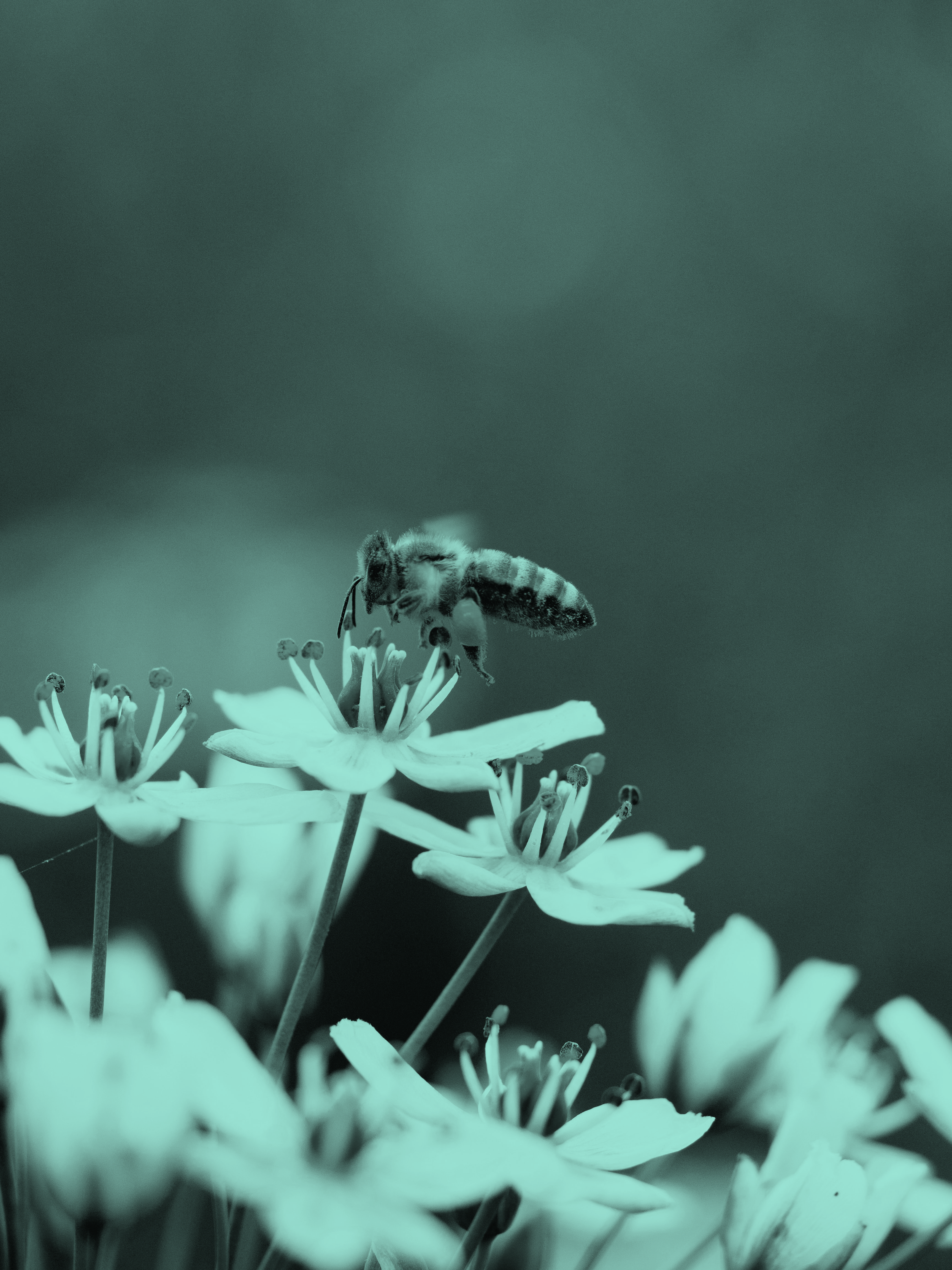
Killer Bees
Authorship and Disclaimer
Created by Josh Canning, MD. These answers are provided by volunteer medical toxicologists for the purpose of public education, and do not necessarily represent the policies or positions of the American College of Medical Toxicology.
All data and information provided in this FAQ is for informational purposes only. ACMT makes no representations as to accuracy, completeness, currentness, suitability, or validity of the content of the FAQ and will not be liable for any errors or omissions in this information or any losses, injuries, or damages arising from its display or use.
What are ‘killer’ bees?
“Killer bees” are also known as Africanized honeybees. These are honeybees that were introduced to Brazil and have migrated over recent decades through Central America and Mexico and into the southern United States. Essentially all honeybee populations in Arizona are now ‘Africanized’. The main characteristic that distinguishes these honeybees from domestic (European) honeybees is aggressive, defensive behavior. Killer bees are more likely to swarm and sting humans in large numbers with little provocation, making them very dangerous.
I was stung by a killer bee. Should I go to the hospital?
A single sting from an Africanized honeybee is no more dangerous than that from any other bee. The most common expected reaction is pain and swelling at the sting site. Most do not require immediate medical attention. People with a history of severe allergy to bee stings are at risk of developing a life-threatening reaction to a single sting, as they might with a sting by a domestic honeybee. If you are uncertain of whether to seek medical attention, call your physician or a local Poison Control Center (1-800-222-1222) for advice.
What makes Africanized honeybees so dangerous?
While their venom is not significantly different from that of domestic honeybees, Africanized honeybees are much more likely to swarm and attack in large numbers. The cumulative amount of venom injected from numerous stings is what causes more severe toxicity. Large doses of venom (usually resulting from more than 50-100 stings) may produce nausea, vomiting, diarrhea, and dangerous effects on the blood, muscle, liver and kidneys. Children, elderly, and people with other serious medical conditions are more likely to develop some of these complications.
What should I do if I’m stung or swarmed?
Attempt to isolate yourself from the swarm of bees by going inside a building or car. Avoid jumping in water to escape the bees because they will wait and attack when you emerge. If you have suffered numerous stings and have any symptoms, such as nausea and vomiting or difficulty breathing, call 911 if necessary and seek medical care immediately. Call your local Poison Control Center (1-800-222-1222) for treatment recommendations.
How do I avoid being attacked by killer bees?
When doing outdoor activities such as yard work, maintenance, or even pest extermination, watch & listen for evidence of a hive. Notify a bee removal expert if you become aware of a hive but do not disturb the hive yourself. Be on the alert when hiking in mountain preserves or parks and closely monitor pets and children playing outside.
What should I do if I find a hive?
Warn other people to avoid the hive and contact a local pest control company to remove the hive. Spraying water or throwing rocks at the hive is dangerous and is discouraged.

Magnets
Authorship and Disclaimer
Created by Brent Furbee, MD and Louise Kao, MD. These answers are provided by volunteer medical toxicologists for the purpose of public education, and do not necessarily represent the policies or positions of the American College of Medical Toxicology.
All data and information provided in this FAQ is for informational purposes only. ACMT makes no representations as to accuracy, completeness, currentness, suitability, or validity of the content of the FAQ and will not be liable for any errors or omissions in this information or any losses, injuries, or damages arising from its display or use.
What are magnets and where are they found?
Magnets are objects that most frequently contain iron and generate a magnetic field that attracts other iron-containing objects. Magnets come in all shapes and sizes. Magnets may be found in toys, cabinet hardware, decorative items placed on refrigerators, as well as in other objects and locations. More recently, rare earth magnets, which are both small and extremely powerful, have become popular as building toys.
Why are magnets dangerous?
When a single magnet is swallowed, it can become lodged inside the throat, lungs, or esophagus (the tube that connects the mouth to the stomach). This can lead to choking, difficulty breathing, or damage to the area. While a swallowed magnet smaller than a penny will generally pass through a child’s digestive system, large, sharp, or oddly shaped items may become stuck.
A much greater danger exists when a magnet is swallowed along with another magnet or piece of metal. When two or more such objects are swallowed, the magnetic attraction can pin the bowel walls together leading to a blockage or tearing of the bowel that is potentially deadly. In 2006, the CDC issued a warning regarding this unique hazard and recommended that children under age 6 should not have access to these items.
Injury may also occur if the magnet becomes stuck in the nose or ear.
What should I do if my child has swallowed a magnet?
If your child has swallowed a magnet or one has become stuck in the nose or ear, take them to a health care facility or call your poison control center at 1-800-222-1222. Do not try to induce vomiting or give food or drink. If the child is experiencing breathing problems call 911.
What symptoms might occur if my child swallows magnets?
There may be no symptoms for a day or two. Flu-like symptoms with nausea, vomiting and abdominal pain may occur when the bowel becomes blocked. If untreated and the bowel wall tears, symptoms may worsen to include loss of consciousness and severe shock. Deaths have occurred as the result of swallowing magnets.
What treatment is provided to a child who swallows magnets?
The treatment is determined by the symptoms the child is experiencing as well as the size, shape, and number of magnets swallowed. The child will most likely have X rays performed prior to decisions about a treatment plan. The treatment plan may range from simple observation to removal of the items, either by a scope or by surgery.

Methadone
Authorship and Disclaimer
Created by Gillian Beauchamp, MD. These answers are provided by volunteer medical toxicologists for the purpose of public education, and do not necessarily represent the policies or positions of the American College of Medical Toxicology.
All data and information provided in this FAQ is for informational purposes only. ACMT makes no representations as to accuracy, completeness, currentness, suitability, or validity of the content of the FAQ and will not be liable for any errors or omissions in this information or any losses, injuries, or damages arising from its display or use.
What is methadone?
Methadone is a medication that is used to treat chronic pain. It is also used to help prevent withdrawal from a group of drugs called opioids, which are similar to morphine. For example, people may take methadone daily to treat chronic pain, such as severe long-lasting back pain, or to treat dependence on opioids such as pain pills or heroin.
Can methadone be abused?
Methadone causes similar effects to drugs like morphine, such as sleepiness, and may be abused by some individuals. Patients who are prescribed methadone daily can develop tolerance to methadone’s effects, which means it takes a higher dose to cause the same effects. This may cause some individuals to feel they need a higher dose, which can result in some patients taking too much of this medication.
What happens if I take too much methadone?
Taking too much methadone causes sleepiness, a dangerously slow rate of breathing, and can cause abnormal heart rhythms. Slow breathing and abnormal heart rhythms can lead to passing out or even death.
What happens if a child accidentally takes methadone?
Methadone is extremely dangerous for children. If a child eats even one pill, he or she may die from stopping breathing or dangerous heart rhythms. Methadone pills must be kept out of reach of children at all times. If a child may have accidentally eaten methadone, that child must be taken to an emergency department immediately.
What are the side effects of methadone?
Other side effects of taking methadone include feeling lightheaded, nausea, constipation and lack of appetite. Even taking a normal dose of methadone can cause abnormal heart rhythm conduction, so a healthcare provider may check a patient’s heart regularly during methadone treatment.
What is the treatment for methadone poisoning?
An individual who has taken too much methadone, or a child who has taken even one methadone pill, may need to be treated with oxygen, artificial breathing, and a medication called naloxone which can reverse the effects of the methadone. Patients with abnormal heart rhythms or low blood pressure might need intravenous fluids and strong heart medications to keep the heart beating regularly and to keep the blood pressure normal. Many individuals with methadone poisoning will need to stay in the hospital.
If I stop taking methadone, are there side effects?
If a person who is used to taking methadone every day stops taking this medication, side effects can include feeling irritable, nausea, vomiting, diarrhea, sweating, shaking and fast heart rate. If a person wishes to stop taking methadone, it is best to have a healthcare professional help, as there is a way to gradually stop taking methadone, and there are medicines to help with the side effects of stopping methadone.
Is methadone detectable in the urine?
Some urine drug tests will detect methadone, but not all drug tests check for methadone in the urine.
Does methadone interact with other medications?
Methadone can interact with other medications a person is taking. Medicines used to treat psychiatric disease such as depression or anxiety, and pain medicines, can be dangerous to take at the same time as methadone. It is important to talk to a healthcare provider before starting or stopping any medication and to find out if it is okay to take medications in combination.
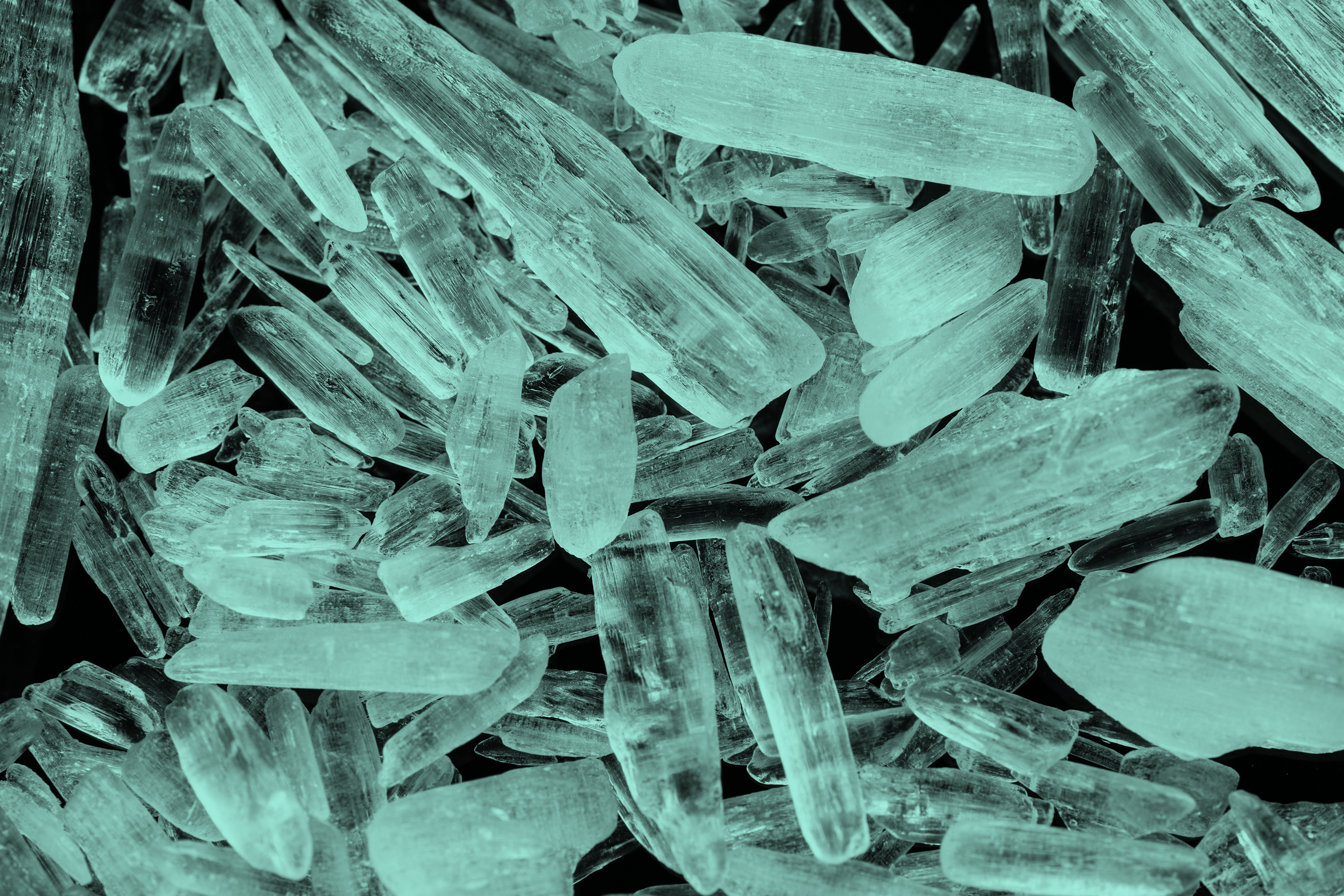
Methamphetamine
Authorship and Disclaimer
Created by Philip W Moore, DO and J Ward Donovan, MD. These answers are provided by volunteer medical toxicologists for the purpose of public education, and do not necessarily represent the policies or positions of the American College of Medical Toxicology.
All data and information provided in this FAQ is for informational purposes only. ACMT makes no representations as to accuracy, completeness, currentness, suitability, or validity of the content of the FAQ and will not be liable for any errors or omissions in this information or any losses, injuries, or damages arising from its display or use.
What is methamphetamine?
Methamphetamine is an amphetamine-type stimulant originally developed as an alternative to ephedrine (another stimulant) in 1919.
Are there other names for methamphetamine?
Other names for methamphetamine include biker’s coffee, black beauties, chalk, crank, crystal meth, glass, ice, meth, poor man’s cocaine, speed, and tweak.
How is methamphetamine used?
Methamphetamine can be administered rectally (also called a butt rocket or plugging), swallowed, inhaled or smoked (also called chasing the white dragon), nasally insufflated (also called snorting), intravenously injected (also called banging or mainlining), and vaginally.
What are the signs of intoxication?
Intoxicated methamphetamine users are energized, restless, talkative, have difficulty sleeping, and can be paranoid and hallucinate.
Where and how is methamphetamine made?
Methamphetamine is synthesized domestically as well as imported illegally from other countries. Clandestine labs are set up in basements, homes and even automobiles. There are many recipes for making methamphetamine and current popular methods have been called Shake and Bake, Nazi, or Red White and Blue. These recipes use simple cold medications containing pseudoephedrine, phenylpropanolamine, or ephedrine, and then add a variety of chemicals in a step-wise fashion, resulting in methamphetamine. Pseudoephedrine and other similar medicines are sold over the counter at pharmacies or grocery stores, and the rest of the supplies can be obtained at a grocery store or a home improvement warehouse.
Are there health risks and dangers associated with methamphetamine production?
Illicit drug manufacturers are called cooks, and are at risk for numerous injuries related to the production of methamphetamine. Not only are methamphetamine cooks at risk, but also anyone in the vicinity of a methamphetamine lab has risk for chemical exposures, depending on proximity and ventilation.
- Direct contact or inhalation
- Through direct contact or inhalation, some chemicals used during the production of methamphetamine can injure the eyes, skin, lungs, and/or brain (e.g. inhaling the fumes of ammonia can result in wheezing and burns to the upper airways). Certain chemicals handled improperly or erroneously mixed, can spontaneously combust or explode.
- Waste products
- With every pound of methamphetamine synthesized, up to 6 pounds of hazardous waste is produced. The disposal of this waste is unregulated; unsuspecting others are at risk if exposed. There have been reports of toxic exposures by children who live or play near a methamphetamine lab or disposal sites, as well as first responding law enforcement agents (police or firefighters), and hospital personnel.
- Traumatic injuries
- Some of these clandestine labs will have homemade security systems, which can inflict bodily harm to trespassers. Labs can have loaded firearms and drug paraphernalia that increase the risk of traumatic injury or death for those in the vicinity.
Thus, synthesis of methamphetamine increases the risk of toxic or traumatic exposures, resulting in serious chemical and mechanical injuries and/or death for both cooks and others whom reside in the area.
What are the adverse effects of methamphetamine use?
Methamphetamine can cause adverse effects to many organ systems including the brain and nerves, gastrointestinal tract, heart, lung, kidney, muscles, skin, bones, and urinary tract. The developing fetus may also be at risk from methamphetamine use.
- Bones and teeth
- Methamphetamine is associated with tooth decay by causing dry mouth, teeth grinding, malnutrition and overall neglect in personal hygiene. There is also increased risk of traumatic injury to bones.
- Brain and nerves
- Methamphetamine is associated with spontaneous bleeding in the brain, seizures, strokes, temporary or permanent memory and attention problems, difficulty walking, sensitivity to light and complete vision loss. Abstinence following intoxication is associated with depression, apathetic attitude, irritability and poor concentration. Chronic abuse is associated with depression and suicidal ideation, psychosis with hallucinations, persecutory delusions and hostility.
- Gastrointestinal tract
- Methamphetamine users are at increased risk of viral hepatitis compared to nonusers if they use contaminated needles or engage in risky sexual behavior. Methamphetamine has been associated with complications which cause severe abdominal pain, bloody diarrhea and vomiting. Methamphetamine can cause spontaneous bleeding in the pancreas.
- Heart
- Methamphetamine can cause chest pain, high blood pressure, fast or abnormal heart rate, coronary artery disease, heart attacks, heart muscle weakness, rupture of the aorta, and can predispose to infections of the heart.
- Lung
- Methamphetamine can cause fluid to accumulate in the lungs and cause problems with breathing.
- Kidney
- Methamphetamine can injure the kidneys, sometimes resulting in the need for dialysis.
- Muscles
- Methamphetamine is associated with muscle breakdown, which may produce pain and lead to kidney injury. It also leads to increased risk of traumatic injuries.
- Pregnancy
- Methamphetamine is associated with premature delivery, vaginal bleeding, smaller than normal fetus, and sudden death of the mother or developing fetus.
- Skin
- Methamphetamine causes repetitive picking behavior that can result in severe scratching of the face and extremities, and result in severe infections.
- Urinary
- Methamphetamine users are more likely to contract a sexually transmitted disease than nonusers if they engage in risky sexual behavior; they also have increased risk of transmission because of longer sexual encounters.
Are there permanent effects from methamphetamine use?
Repeated high doses of methamphetamine can cause permanent brain changes, which result in memory and attention problems or even psychosis with hallucinations, persecutory delusions and hostility.
Are there laws to counter the production of methamphetamine?
The federal government passed the Methamphetamine Control Act of 1996 as well as the Combat Methamphetamine Epidemic Act of 2005. These laws strengthen penalties and tighten controls on methamphetamine precursors, regulating the sale of pseudoephedrine, ephedrine and phenylpropanolamine.
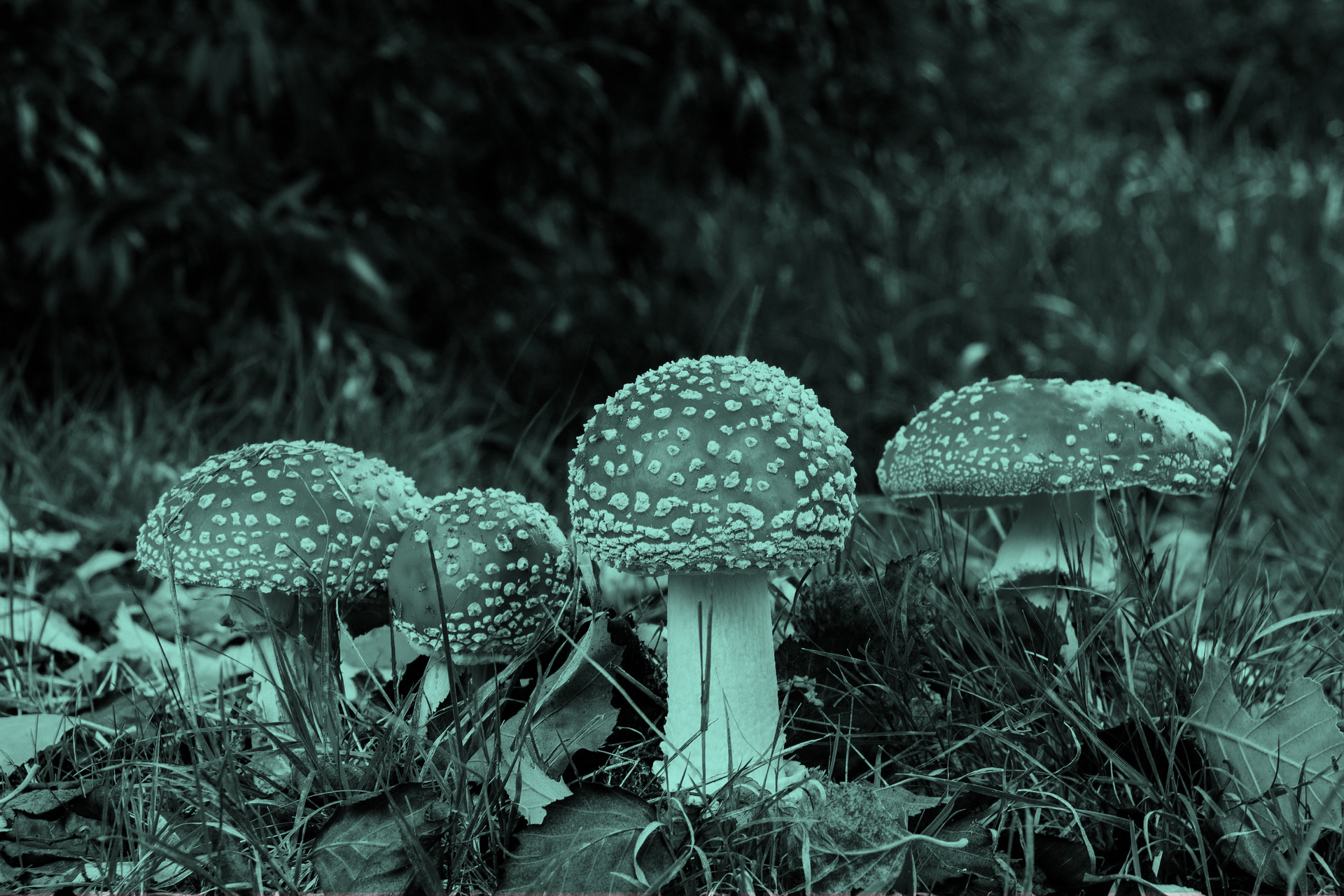
Mushrooms
Authorship and Disclaimer
Created by Carrie Truitt, MD. These answers are provided by volunteer medical toxicologists for the purpose of public education, and do not necessarily represent the policies or positions of the American College of Medical Toxicology.
All data and information provided in this FAQ is for informational purposes only. ACMT makes no representations as to accuracy, completeness, currentness, suitability, or validity of the content of the FAQ and will not be liable for any errors or omissions in this information or any losses, injuries, or damages arising from its display or use.
Before I moved to Arizona I used to pick mushrooms. Can I pick and eat the same mushrooms here?
Unfortunately poisonous mushrooms in one geographical region often have a similar appearance to edible mushrooms in other areas. Whenever you move to a new region you need to learn which mushrooms are edible or poisonous in that area before eating any of them. Depending on the geographical region, consuming the wrong wild mushrooms can cause your liver or kidneys to fail, muscles to break down, and ultimately lead to death. In general, it is best not to forage for wild mushrooms.
What is the most common poisonous mushroom in Arizona?
Chlorophyllum molybdites, or the “Green Spored Lepiota”, grows in Arizona and much of the United States, especially on grassy lawns. It looks like some edible Lepiota species, but when eaten this mushroom causes nausea, vomiting, diarrhea, and abdominal discomfort in about 1 to 3 hours. It can be distinguished from some other mushrooms by the green spore print it leaves when dried.
What are “shrooms”?
Also known as “magic mushrooms”, this group of mushrooms contain psilocybin and other hallucinogen-causing substances. People eat the dried mushroom or a powder made from the mushroom in an attempt to hallucinate. Other than hallucinations and other sensory perception disturbances, these mushrooms may also cause nausea, vomiting, lightheadedness, and anxiety.
Are there other mushrooms which people abuse?
Amanita muscaria, also known as Fly Agaric, is another mushroom which is often ingested for its sensory perception and sedating characteristics. These mushrooms classically have a bright red or yellow cap with white spots. The toxins in them include ibotenic acid and muscimol, and eating the mushrooms can also lead to sweating, increased salivation, nausea, vomiting, abdominal discomfort, and delirium.
What should I do if I feel ill after eating mushrooms I collected myself?
Call the Poison Control Center (1-800-222-1222) as soon as you develop any symptoms, or as soon as you believe you ate a poisonous mushroom. If you have severe discomfort, go directly to an emergency room. If you still have a sample of the mushroom, hold onto it, because it may help in determining if it was poisonous or not.

Nicotine
Authorship and Disclaimer
Created by Mai Takematsu, MD. These answers are provided by volunteer medical toxicologists for the purpose of public education, and do not necessarily represent the policies or positions of the American College of Medical Toxicology.
All data and information provided in this FAQ is for informational purposes only. ACMT makes no representations as to accuracy, completeness, currentness, suitability, or validity of the content of the FAQ and will not be liable for any errors or omissions in this information or any losses, injuries, or damages arising from its display or use.
What is nicotine and what forms of nicotine are available?
Nicotine is derived from the tobacco plant. The primary products that contain nicotine are tobacco-containing products such as cigarettes, cigars, pipe tobacco, and chewing tobacco. There are some nicotine containing smoking cessation products such as patches and gums. In addition, electronic cigarettes or “E-cigarettes”, contain purified nicotine and not tobacco and are increasing in popularity. Unlike tobacco products and the smoking cessation aids, liquid nicotine is not regulated by FDA or another federal agency (although some states have regulations).
Cigarettes: The amount of nicotine contained in a single cigarette varies. Only a fraction of the nicotine is inhaled since most of it goes off as side-stream smoke in the typical smoker. Nicotine toxicity from smoking is further limited because the effects of inhaled nicotine occur rapidly (within seconds), limiting further intake. Nicotine toxicity can occur through the ingestion of cigarettes or butts, typically eaten by young children, in which case a large amount of nicotine can be absorbed.
Chewing tobacco: Chewing tobacco is also called smokeless tobacco, or “dip.” The nicotine is absorbed through the oral surface. The nicotine content can be as high as that of “low nicotine cigarettes.” Chewing tobacco is associated with a very high risk of cancers in the mouth and throat.
Nicotine gum: Nicotine gums are used as an aide to smoking cessation. Gum contains a small amount of nicotine and raises the nicotine concentration in the body slower than cigarette smoking. Excess use of the gum is limited by adverse effects.
Nicotine patches: These patches contain a large amount of nicotine in order to allow the drug to be delivered continuously for many hours daily. If the patch is bitten and ingested, nicotine may leak and severe toxicity may occur.
E-cigarettes: This is a battery-powered device that vaporizes liquid nicotine, sometimes called “e-liquid” or “e-juice.” The nicotine in these preparations is often highly concentrated, and may be mixed with a flavoring agent such as blueberry, bubble gum, or vanilla. The containers range from the size of an eye-drop bottle to a gallon container, and often have designs that are appealing to a child, leading to concerns that children will be poisoned by these products. In addition, there are concerns that the simplicity and easy availability of these products may be a pathway to nicotine addiction for non-smokers. Its role in smoking cessation is currently unclear but likely could be beneficial.
What happens if my child accidentally eats nicotine?
Exposures to low doses of nicotine, well less than a cigarette or a few drops of e-liquid, causes nausea, tremor, rapid heart rate, and high blood pressure. Severe nicotine poisoning causes vomiting, confusion, irregular heart rate, seizures, and respiratory failure. Death may occur.
What happens if I take too much nicotine?
Nicotine poisoning can occur in children and adults. Symptoms of nicotine toxicity from tobacco products usually begin within 15 minutes of exposure, depending on the route of administration. If you develop only minor symptoms, recovery is relatively quick.
What treatments are available for nicotine poisoning?
There is no specific antidote for nicotine toxicity, so treatment can be complicated and is focused on treating the symptoms that occur individually with medications.
Sources of Nicotine
| Source | Content (mg) |
|---|---|
| 1 whole cigarette* | 10-30 |
| 1 cigarette butt | 5-7 |
| 1 cigar* | 15-40 |
| 1 gram chewing tobacco | 6-8 |
| 1 piece nicotine gum | 2-4 |
| 1 nicotine patch** | 8-100 |
| 1 vial (5ml) e-juice | 0-100 |
**nicotine is slowly absorbed through the skin, and much of it remains in the patch at the end of use.
Ingestion of a Toxic Dose of Nicotine
Dose – Low toxic dose (one tenth of a cigarette in children, half to 1 whole cigarette in adults)
| Onset | Symptoms |
|---|---|
| 15-90 min | Tremor, nausea, increase in heart rate/blood pressure/respiratory rate, mental alertness, euphoria |
Dose – High toxic dose (one third – 1 whole cigarette in children, 1-3 whole cigarettes in adults)
| Onset | Symptoms |
|---|---|
| Within minutes – 1 hour | Nausea/vomiting/diarrhea, increase in heart rate/blood pressure/respiratory rate, headache, dizziness, confusion, seizures. |
| 30 min to 4 hours | Low blood pressure, slow heart rate, lethargy, weakness, paralysis |

NSAIDS
Authorship and Disclaimer
Created by Michelle Hieger, DO. These answers are provided by volunteer medical toxicologists for the purpose of public education, and do not necessarily represent the policies or positions of the American College of Medical Toxicology.
All data and information provided in this FAQ is for informational purposes only. ACMT makes no representations as to accuracy, completeness, currentness, suitability, or validity of the content of the FAQ and will not be liable for any errors or omissions in this information or any losses, injuries, or damages arising from its display or use.
What are NSAIDS?
The abbreviation ‘NSAIDs’ stands for nonsteroidal anti-inflammatory drugs (medication). Medications that belong to this class help with the treatment of inflammation (swelling), pain, and fevers. Ibuprofen is one type of NSAID.
What medications are NSAIDS or contain NSAIDS?
Many over-the-counter and prescription medications other than ibuprofen also fall into the group of medications described as NSAIDs. Brand names of some of these medications include
Advil®, Bayer Select®, Dayquil Sinus®, Dimetapp Sinus®, Dristan Sinus®, Excedrin IB®, IBU®, Motrin®, Motrin IB, Nuprin®, Pamprin®, and Aleve®. The ‘generic’ names for some commonly used NSAIDS include naproxen, aspirin, meloxicam, ketorolac, and diclofenac. There are many formulations of medications which contain NSAIDs (not all are mentioned here).
How much of an NSAID can I take?
The dose of medication that an adult should take depends on the specific type of NSAID. Common adult dosing for ibuprofen is 400 mg every 6 hours as needed. Prescription strength ibuprofen is higher than this. Read the bottle label or package instructions for dosing of each medication formulation.
Can I take multiple different types of NSAIDs at the same time?
You cannot take multiple types of NSAIDS at the same time. You should choose which medication to use and use only that medication unless you completely switch to another. It is important to always read the labelling of over-the-counter medications to avoid taking multiple products containing NSAIDs at the same time.
Can I take acetaminophen (Tylenol®) at the same time as an NSAID?
Yes. Acetaminophen and NSAIDs work differently in the body, so they are safe to take at the same time.
Can I take NSAIDs if I am pregnant?
Do not take NSAIDs while pregnant unless instructed to do so by your doctor.
Can I give NSAIDs to my child?
You can give NSAIDs to your child after they are 6 months of age. Read the instructions carefully before giving it to your child. If you have questions about dosing, ask your child’s doctor or pharmacist.
Are NSAIDs dangerous?
NSAIDs can be dangerous if taken in excess or if you have stomach problems, kidney problems, or heart problems. If you have any concerns, ask your doctor whether NSAIDs are safe for you.
What happens if someone takes too much of an NSAID?
Most commonly, abdominal discomfort, nausea and/or vomiting can occur when someone takes too much of an NSAID. If you think you may have taken too much, or if you develop symptoms, talk with your doctor or call your regional poison center at 1-800-222-1222 for advice.

Oral Numbing Gels
Authorship and Disclaimer
Created by Joel Brooks and Patrick Lank, MD. These answers are provided by volunteer medical toxicologists for the purpose of public education, and do not necessarily represent the policies or positions of the American College of Medical Toxicology.
All data and information provided in this FAQ is for informational purposes only. ACMT makes no representations as to accuracy, completeness, currentness, suitability, or validity of the content of the FAQ and will not be liable for any errors or omissions in this information or any losses, injuries, or damages arising from its display or use.
What are oral numbing agents?
Oral numbing agents, such as Orajel® and Anbesol®, are medications that can be applied directly (topically) to the surface of the mouth and gums (oral mucosa) to relieve pain from toothaches, canker sores, and braces. The active ingredient in these products is benzocaine, a local anesthetic that causes numbness in the area where it is applied by blocking nerve pain signals. Orajel® Adult contains twice as much benzocaine as Anbesol® Adult (20% versus 10%). These topical benzocaine products are widely used by older children and adults with mouth pain. They are primarily found in gel form but are also available as a liquid, spray, or lozenge.
How do I use an oral numbing agent?
Oral numbing medications are applied directly to the affected area. Follow the directions on the product label or the directions provided by your pharmacist or physician. Use the smallest amount necessary to relieve pain, and use it no more than the number of times recommended daily. Avoid getting it into your eyes.
How much oral numbing medication can I use?
Since the amount used that may result in a dangerous (toxic) reaction is not clearly known, it is important not to overuse the medication (please see ‘Are oral numbing gels dangerous?’). For adults, product labels generally recommend using only small amounts, at most 4 times daily, for a maximum of 7 days. For infants under one year of age, as little as ¼ teaspoon of 7.5% gel (100mg) and, in older children, approximately ½ teaspoon of 7.5% gel (greater than 240mg) have been associated with severe poisoning.
Are oral numbing medications dangerous?
Oral numbing medications are capable of causing severe side effects if used incorrectly. Adverse effects include, but are not limited to, headaches, feeling tired or dizzy, confusion, fast heart rate (tachycardia), abnormal heartbeats (dysrhythmias), seizures, shortness of breath, lightheadedness, hives, facial swelling, burning or stinging sensation where the medicine was applied, or gray/blue colored skin. Any of these symptoms can be indicative of a more severe reaction. The skin discoloration is a sign of a condition called methemoglobinemia, which starves the body’s tissues of oxygen and may be fatal when severe. According to a report by the U.S. Food and Drug Administration (FDA), children younger than 2-years-old may be at increased risk of developing methemoglobinemia. The FDA therefore does not recommend using benzocaine-containing oral numbing medications in children aged 2 years and younger except under the supervision of a healthcare professional. For more information on FDA recommendations about over-the-counter oral numbing medications, see the following link: www.fda.gov/Drugs/DrugSafety/ucm250029.htm
What happens if someone I know uses too much topical benzocaine?
If you are afraid that you or someone you know might have used too much of an oral numbing product, call your local Poison Control Center at 1-800-222-1222. There are overdose specialists at poison centers who can provide you with guidance and directions. It might be necessary to go to the emergency department for further evaluation and treatment. Top of Page
Can I use adult oral numbing medications on an infant or child?
Adult oral numbing gels cannot be used for an infant or child. Adult forms of this medication contain a larger amount of benzocaine than the infant forms (10-20% versus 7.5%) and can lead to serious side effects. Additionally, the FDA does not recommend the use of benzocaine-containing oral numbing gels in children younger than 2 years (see “Are oral numbing medications dangerous?” above). In children older than 2 years, only the minimum amount necessary to relieve pain should be used. Contact your child’s doctor before starting them on an oral numbing gel.
Will my other medications interact with oral numbing medications?
It is unlikely that other medications taken orally or by injection will have an effect on oral numbing medications or will be affected by them. However, you should always inform your doctor about any medications you currently use or are planning to start. This includes vitamins, herbal supplements, over-the-counter, and prescription medications.
Are oral numbing medications safe to use during pregnancy?
Oral numbing gels are considered a Pregnancy Category C drug, which means animal studies have shown the drugs to have bad effects on the fetus. There are no adequate studies in humans. If you are pregnant or planning to become pregnant, speak to your doctor about the risks and benefits before starting any oral numbing gel.
Are there any other safety facts I should know about oral numbing medications?
Oral numbing medications should not be used if the imprinted bottle safety seal is damaged or missing. Avoid using these products for more than a few days unless instructed to by a doctor or dentist. Do not use these products if you have ever previously had methemoglobinemia. Ask your doctor before starting any oral numbing agent in children. Keep these products (and all other medications) out of the reach of children, and do not leave children unsupervised with these products.
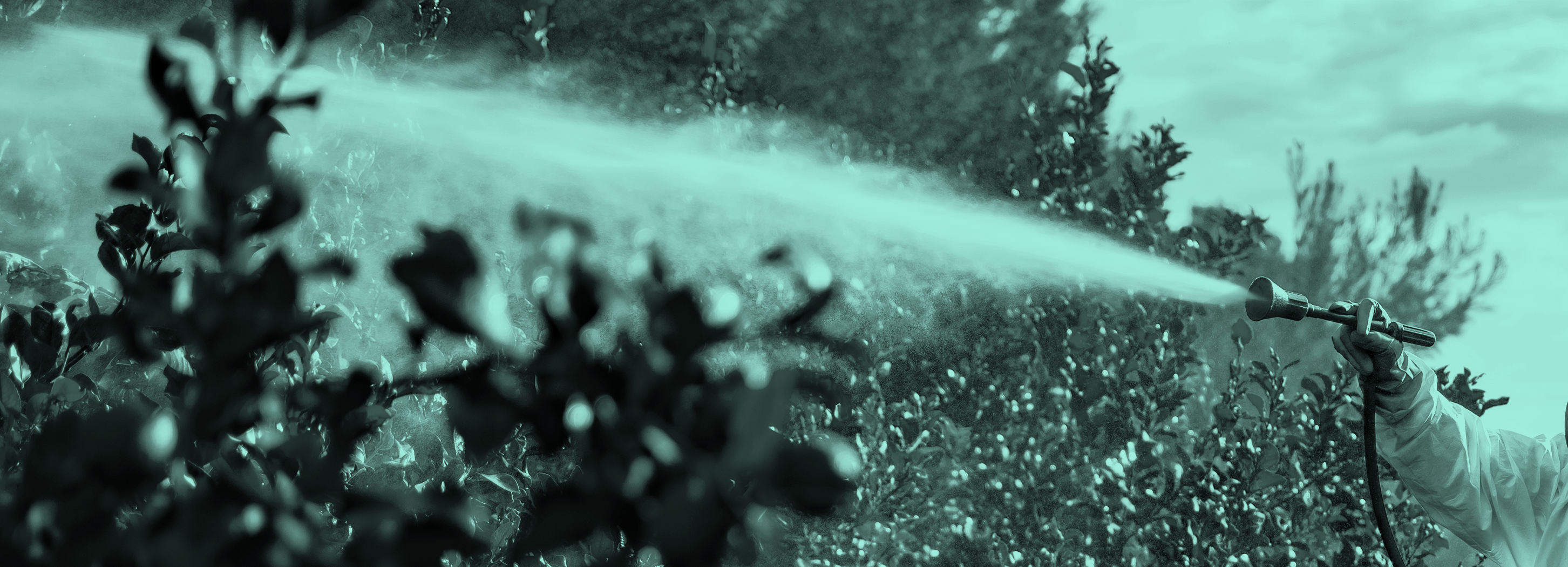
Pesticides
Authorship and Disclaimer
Created by Dorian Jacobs, MD. These answers are provided by volunteer medical toxicologists for the purpose of public education, and do not necessarily represent the policies or positions of the American College of Medical Toxicology.
All data and information provided in this FAQ is for informational purposes only. ACMT makes no representations as to accuracy, completeness, currentness, suitability, or validity of the content of the FAQ and will not be liable for any errors or omissions in this information or any losses, injuries, or damages arising from its display or use.
What are pesticides?
Pesticides are substances designed to kill insects and other organisms. There are many different types of pesticides available for use depending on the ’pest’ you are looking to control. Examples of different kinds of pesticides include insecticides, rodenticides, and herbicides, to name a few.
How do pesticides work?
Pesticides are designed to interfere with some biological or chemical pathway critical to the survival of the pest to which it is targeted. When the pesticide interrupts these pathways, the target organism dies.
How can pesticides be dangerous to humans?
While some pesticides target pathways unique to insects, plants, bacteria, or fungi, other pesticides have a broad spectrum of activity. This means that they can have toxic effects in humans as well as in the target species. Pesticides are often stored in places where they are easily accessed – garages, sheds, under sinks. Depending on the particular pesticide, they can be toxic if swallowed, inhaled, or have direct contact with skin.
Different pesticides can cause different toxicities. Pyrethroid pesticides are synthetic derivatives of a substance found within chrysanthemum flowers. Pyrethroids are relatively nontoxic to humans, even with large exposures.
Carbamate pesticides work by increasing the amount of acetylcholine (a neurotransmitter) in the target organism; they cause effects in both pests and humans. Exposures in humans, such as might occur if someone ingested the product, can lead to severe toxicity requiring hospitalization. Organophosphate insecticides also work by increasing the amount of acetylcholine in the target organism; however, organophosphates have longer-lasting effects on neurotransmitter levels in both humans and pests that make them more toxic than carbamate pesticides.
What can happen if someone is exposed to pesticides?
Direct contact with pesticides to the skin can lead to irritation and/or burns of the skin or mucous membranes, sometimes severe. Inhalation of the fumes from containers of pesticides can lead to a feeling of chest tightness and difficulty breathing. Ingestion of either carbamate or organophosphate pesticides can result in the physical effects of having too much acetylcholine in the body – sweating, runny nose, tearing from the eyes, vomiting, diarrhea, slow heart rate, and pulmonary congestion (too much fluid in the lungs). Without proper medical intervention including medications and supportive care, death can occur.
What can I do if someone is exposed to pesticides?
In the event of skin or mucous membrane exposure, irrigate the exposed area with a copious amount of water. Call 1-800-222-1222 to speak with a representative from a Poison Control Center to help with treatment recommendations. If you have any difficulty breathing or swallowing following exposure to a pesticide, call 911 or go directly to the nearest emergency department. Bring the container of the pesticide you were exposed to with you to help guide the medical staff who will be taking care of you.
What are other safety facts I should know about pesticides? How can I keep my family safe?
Proper storage of any toxic chemical is paramount. Keep the pesticides in the original container that they came in – do not offload into plain plastic bottles or other generic containers. Do not keep pesticides within reach of young children. If you have young children, make sure the pesticides are stored away from the house in a locked cabinet or storage shed.

Plants
Authorship and Disclaimer
Created by Carrie Truitt, MD. These answers are provided by volunteer medical toxicologists for the purpose of public education, and do not necessarily represent the policies or positions of the American College of Medical Toxicology.
All data and information provided in this FAQ is for informational purposes only. ACMT makes no representations as to accuracy, completeness, currentness, suitability, or validity of the content of the FAQ and will not be liable for any errors or omissions in this information or any losses, injuries, or damages arising from its display or use.
How are people most frequently poisoned by plants?
Most plant poisonings occur because a plant is ingested. Poisonous plants are sometimes mistaken for edible species, or children ingest a plant not realizing it will harm them. Sometimes people ingest a plant intentionally for the purpose of getting some medicinal effect.
Can you get poisoned by touching a plant?
Plants which contain the toxin urushiol oil may produce an itchy rash in sensitive people. These plants include poison ivy, poison oak, and poison sumac. While the rash is not contagious, if the urushiol oil is still on the skin or clothing, touching it to another body part can cause a rash to develop there.
I found my child eating a poisonous plant. I was able to take it away, but not until after some had been swallowed. Do I need to worry?
The amount of plant required to produce illness varies depending on the particular plant and part ingested. Children often get into poisonous houseplants, which cause irritation to their tongue and mouth when chewed, often limiting the amount they ingest and preventing more serious illness and injury. There are some plants, however, which can cause great harm even when only small amounts are consumed. For example, ingesting only a few small seeds of Jimson Weed, or chewing a small amount of Castor Bean(s) or Rosary Pea(s) can result in serious poisoning and may be life-threatening. Ingesting even a small piece of water hemlock root can result in violent seizures and death. Similarly, small amounts of oleander can cause an abnormal heart rate and rhythm. When in doubt it is recommended to call a Poison Control Center at 1-800-222-1222.
What are common poisonous plants found in Arizona?
Jimsonweed
Also known as Devil’s Trumpet, Angel’s Trumpet and Sacred Thorn Apple, this plant has large white or purple trumpet-shaped flowers and spiky seed pods. Ingesting even small amounts of the plant or seeds can result in confusion, frightening hallucinations, the inability to urinate or sweat, overheating, and a rapid heart rate. Depending on the amount ingested, these troubling symptoms can last hours to many days, and in some cases can lead to death. Some other plants which contain similar toxins include mandrake, belladonna, and henbane. The toxins in these plants are scopolamine (used in medications for motion sickness), atropine, and related chemicals.
Oleander
This common shrub contains chemicals similar to the heart medication digoxin, and all parts of the plant are poisonous. Even small amounts of the plant or a tea made from the plant can cause poisoning, which includes nausea, vomiting, and an abnormal heart beat which can be deadly. Some other plants which contain similar toxins include Foxglove, Red Squill, and Lily of the Valley.
Water Hemlock
This is the most common lethal plant ingestion in the United States. The plant usually grows in marshy areas by water, has many small white flowers, and has a complex chambered root. Unfortunately the plant is often mistaken for turnip, parsley, and parsnip. The whole plant is toxic with the root containing the greatest amount of toxin. Only a few bites of the root may lead to nausea, vomiting, abdominal discomfort, sweating, salivation, low blood pressure, slowing of the heart rate, coma, and violent seizures.
Castor Bean
The castor bean plant is large, leafy, and contains brownish-colored seed pods, each containing 3 castor beans. While the seeds contain ricin, an extremely potent toxin, the seed must be opened or crushed to release the toxin. People who ingest a whole, intact seed usually do not become ill. However, if seeds are chewed or the poison is extracted from the plant, a person’s organs will shut down and death may occur within a few days. A similar toxin, abrin, is contained in the black and red ornamental seeds commonly referred to as Rosary Peas or Jequirty Beans. Similarly, whole intact seeds cause no significant toxicity, but seeds with a broken outer capsule may poison a person who ingests them.
Peyote
This small cactus contains the toxin mescaline. Ingestion of peyote causes nausea, vomiting, hallucinations, increased blood pressure, and a fast heart rate.
Deiffenbachia
This is a common indoor plant which contains microscopic needle-like crystals in the leaves which cause irritation when a leaf is broken open. The most common way people, especially toddlers, are exposed to this plant is by biting into a leaf. Many other plants contain these microscopic crystals, including Alocasia and Philodendron
Chinaberry
This tree has little yellow berries and small white and purple flowers. While the berries are most commonly ingested, all parts of the plant contain the toxin, meliatoxin. After consuming parts of this plant people experience nausea, vomiting, abdominal discomfort and diarrhea which may even contain blood.
Mormon Tea
This plant contains the stimulant ephedra, and when consumed as a plant or tea may cause agitation, a fast heart rate, and elevated blood pressure.
Mescal Bean Bush
This leafy plant with complex purple flowers has woody pods which contain red seeds. It is also known as “Texas Mountain Laurel”. The toxin in this plant is cytisine, which is similar to nicotine. If the seeds are chewed, this plant may cause nausea, vomiting, hallucinations, a fast heart rate, muscle weakness, and seizures. Similar toxicity can occur when plants or seeds with similar nicotine-like substances in them are ingested (e.g. desert tobacco, poison hemlock).

Scorpions
Authorship and Disclaimer
Created by Josh Canning, MD. These answers are provided by volunteer medical toxicologists for the purpose of public education, and do not necessarily represent the policies or positions of the American College of Medical Toxicology.
All data and information provided in this FAQ is for informational purposes only. ACMT makes no representations as to accuracy, completeness, currentness, suitability, or validity of the content of the FAQ and will not be liable for any errors or omissions in this information or any losses, injuries, or damages arising from its display or use.
Are all scorpions dangerous?
There are a large variety of scorpion species in the desert Southwest and United States, but only one is potentially dangerous to humans. This is the Arizona bark scorpion (Centruroides sculpturatus), a small yellowish-brown scorpion (up to 2-3 inches) that possesses the ability to climb, unlike other species. This allows it greater access to homes and interaction with people. The Bark scorpion uses a stinger located at the end of its tail to inject a neurotoxic venom that may cause serious illness in young children.
How can I avoid getting stung by a scorpion?
Know where scorpions live
Unfortunately, living in or visiting the desert brings you into the scorpions’ natural habitat. Bark scorpions are active in the warm-weather months, and are more prevalent near open wilderness areas and preserves. They often enter homes and since they can walk across ceilings and up walls, they may drop into bathtubs, sinks and even cribs.
Avoid walking barefoot
Many people are stung while walking barefoot around their home, near the pool, or in the garage. It is a good idea to wear shoes, even in your home, if you get the occasional scorpion visitor.
Treat your home
Pesticides are effective against scorpions. While some are more effective than others, most pest control companies in the desert are familiar with protecting against scorpions.
Shake out and examine clothes and bed sheets
Many stings occur in the bedroom and living room. Always shake out your shoes and your clothes before putting them on, especially if they are left outside. In areas with known scorpion presence, it is generally a good idea to pull back the bed sheets and look under pillows.
Protect your children
Educating school-age children about how to avoid stings is important. To prevent scorpions from crawling into a crib, place the legs of the crib inside glass mason jars. Keep curtains and drapes away from the crib, since this is an easy way for scorpions to gain access.
How do I know if my child has been stung by a scorpion?
After being stung, most people experience pain near the sting site. A burning and tingling sensation may travel to other parts of the body. More serious envenomations are associated with severe pain throughout the body, with jerking movements of the arms and legs, drooling, sweating, and roving eye movements, which can lead to visual disturbances and nausea. Given their smaller size, children are at much higher risk of developing serious toxicity. Unfortunately, young children may not be able to report the scorpion sting. Sudden onset of uncontrolled thrashing, restlessness, crying, drooling, and abnormal eye movements should alert parents and caregivers to the possibility of a sting. Because of excellent access to medical care in the United States, deaths from scorpion stings are extremely rare.
What should I do if I am stung by a scorpion?
If you believe you’ve been stung by a scorpion, call your local poison control center at 1-800-222-1222. They will give you first-aid recommendations and follow up with you by telephone to make sure you don’t require treatment in a health care facility. The majority of people can be treated with over-the-counter pain medications such as acetaminophen or ibuprofen, but if the pain is severe or if there are other symptoms such as sweating, jerking of the arms and legs, vision problems, or difficulty breathing, medical care should be sought. Lightly applying ice to the area may be helpful, but be careful not to apply too much cold due to risk of frostbite.
What should I do if my young child is stung by a scorpion?
If you believe your child has been stung by a scorpion, call your local poison control center at 1-800-222-1222. Remember that children are more likely to suffer a severe reaction than adults and frequently require care in the emergency department.
How are scorpion envenomations treated?
The great majority of people can be treated with over-the-counter pain medications. Severe pain may require temporary use of stronger prescription pain medications. Patients with severe systemic symptoms, which might include uncontrolled movements of the eyes and muscles as well as difficulty breathing, may benefit from antivenom therapy. Antivenom must be administered by a health professional in a hospital setting.
If my child has previously been treated with antivenom, can he receive it again?
Yes, but your child may be at a slightly increased risk of allergic reaction with repeated doses. When evaluated in the Emergency Department, the doctor will determine if antivenom treatment is appropriate for your child.

Snakes
Authorship and Disclaimer
Created by Carrie Truitt, MD. These answers are provided by volunteer medical toxicologists for the purpose of public education, and do not necessarily represent the policies or positions of the American College of Medical Toxicology.
All data and information provided in this FAQ is for informational purposes only. ACMT makes no representations as to accuracy, completeness, currentness, suitability, or validity of the content of the FAQ and will not be liable for any errors or omissions in this information or any losses, injuries, or damages arising from its display or use.
How can I tell if a snake is venomous?
Most venomous snakes in the United States belong to the family of snakes sometimes referred to as pit vipers. These snakes, which belong to the Family Crotalinae, include rattlesnakes, copperheads, and cottonmouths (water moccasins). All pit vipers in Arizona are rattlesnakes. These snakes are most easily identified by the presence of a rattle on their tail and a triangular shaped head. However, some young snakes may not have developed a rattle yet but still possess venom. When in doubt, avoid contact!
Aside from pit vipers, all other venomous snakes native to the U.S. are coral snakes, which belong to the Elapid family of snakes. Coral snakes found in the Eastern U.S. can be very dangerous to humans, but the Sonoran coral snake, found in Arizona, is not.
Is the Sonoran coral snake dangerous?
While coral snakes in other parts of the country may cause more serious toxicity, the Sonoran coral snake has caused some people to experience a numb sensation. There have been no life-threatening envenomations reported due to the Sonoran coral snake.
How do I avoid being bitten by a snake?
If you see a live snake, keep a good distance away from it. Do not attempt to touch or move the snake. Do not reach into bushes or areas you can not see well and pay close attention to where you step. Wear shoes or boots when hiking, and stay on marked trails. Avoid walking in brush which may obscure a snake.
Is a snake still dangerous after it is dead?
Yes. If you find a dead snake, do not come into contact with the snake’s mouth, because dead snakes can still deliver venom through their fangs. Even a severed head of a snake still has the ability to inject venom when it is touched.
What happens when a person is bitten by a venomous snake?
Rattlesnake envenomation often causes severe pain and swelling. In some cases, skin and other tissues in the area of the bite may die, leading to loss of a finger or toe. Immediately after being bitten it is common to have pain, nausea, vomiting, and an unusual taste in the mouth. The venom also acts on the blood, putting the victim at risk for serious bleeding. Some people may experience severe allergic reactions, drops in blood pressure, swelling of the mouth and throat, or neurologic effects, such as numbness and weakness.
Is it possible to remove the venom after I’ve been bitten by a snake?
No. Venom is delivered to the local tissue and is absorbed into the body too rapidly to remove any significant amount. Attempting to extract the venom may damage tissue further, and has not been shown to change the effects of the snake bite.
What should I do if I’m bitten by a snake?
Get away from the snake and avoid another bite. If the bite was on an arm or a leg, keep that extremity as still as possible. Call 911or go to your nearest emergency department for medical care right away.
If you are alone or are far away from civilization, call for help. If you need to hike to get help, keep yourself well-hydrated.
What shouldn’t I do if I am bitten by a snake?
Do not place a tourniquet or constrictive dressing on the extremity. Do not apply ice. Do not cut, burn or electrocute the site, and do not attempt to suck venom out of the wound. All of these techniques can cause further damage, and will not improve the overall outcome from the bite.
Is it important to know which type of venomous snake bit me to get appropriate treatment?
It is helpful to be able to generally describe the snake which bit you (e.g. rattlesnake, exotic pet snake). It is not important to know the particular species of rattlesnake since all produce similar findings and result in the same treatment. Never risk another bite for the sake of identifying the snake.
What treatment am I likely to receive if I am bitten by a venomous snake?
Depending on your symptoms, you may need intravenous fluids and medications for nausea and/or pain. Rattlesnake bites are often treated with antivenom to prevent worsening of swelling and to counteract the effects of venom on the blood. The same antivenom may be used to treat bites by all species of rattlesnakes, copperheads, and cottonmouths native to the United States.
What medications should I avoid while being treated for a snakebite?
Do not use aspirin or nonsteroidal anti-inflammatory medications such as ibuprofen after a snakebite, unless your physician says it is okay. Also speak with your physician before using any anti-platelet or anticoagulant medications for up to three weeks following a bite.
Is it possible to become immune to snake venom?
There is no evidence that being envenomated makes a person immune to future envenomations by snakes. In fact, people who are exposed to snakes may have a higher chance of having an allergic reaction to snake bites in the future.
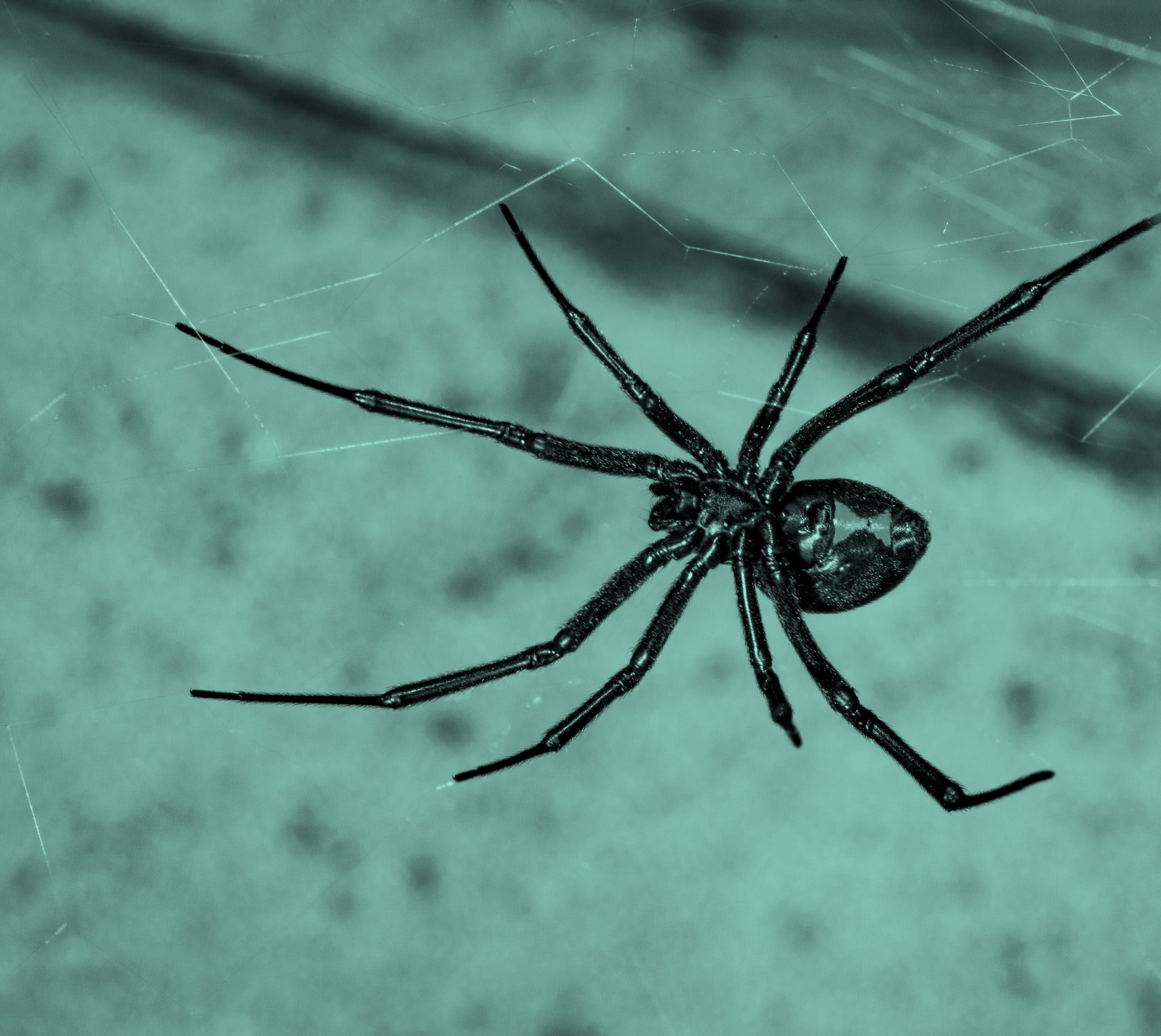
Spiders
Authorship and Disclaimer
Created by Josh Canning, MD. These answers are provided by volunteer medical toxicologists for the purpose of public education, and do not necessarily represent the policies or positions of the American College of Medical Toxicology.
All data and information provided in this FAQ is for informational purposes only. ACMT makes no representations as to accuracy, completeness, currentness, suitability, or validity of the content of the FAQ and will not be liable for any errors or omissions in this information or any losses, injuries, or damages arising from its display or use.
Are all spider bites dangerous?
The majority of spider bites are not dangerous at all. Most spiders’ fangs aren’t long enough to penetrate the skin or their venom doesn’t cause serious toxicity. There are two species of spiders in the US that may cause more significant symptoms than just skin irritation and pain: the Black Widow and the Brown Recluse. Black widow (Latrodectus mactans) and Brown recluse (Loxosceles reclusa) spiders generally like to hide out in dark, dry locations such as wood piles, storage sheds and dark corners of garages. When entering or working in one of these areas, it is important to wear proper footwear and consider wearing gloves if you can’t see where you are reaching with your hands.
What’s the difference between a black widow and a brown recluse spider?
When it comes to black widow spiders, the females cause the most toxicity. They are large and black in color and often have a distinctive red hourglass marking on their abdomen. Some species possess only a red, yellow or orange mark, without the hourglass shape. The males are much smaller and do not cause significant toxicity. Black widow bites are more common during warmer months of the year.
Brown recluse spiders are, not surprisingly, brown and have a characteristic “fiddle-shaped” marking on their back leading to their other name, the Fiddleback spider. The brown recluse is more active at night and bites are generally defensive, occurring when the spider is trapped between bedding or clothing. These spiders are essentially only found in the Midwest and South Central US.
Black Widow Spiders
What happens when someone is bitten by a black widow spider?
Black widow bite often result only in pain at the bite location. Sometimes a more serious reaction to the venom occurs, which may lead to severe muscle spasms and pain in the back, abdomen, and extremities. One may also experience sweating, fast heart rate and high blood pressure, with symptoms generally starting within 1-2 hours of the bite. Very rarely, an allergic reaction to the venom may occur.
What should I do if I’m bitten by a black widow spider? How dangerous is the bite?
If you are bitten and have any symptoms, you should call your local poison control center at 1-800-222-1222 for treatment recommendations. They may recommend that you seek medical care in an Emergency Department or with your primary physician. Despite their reputation as one of the most feared spiders, black widow bites are generally not life-threatening. Death following a bite is extremely rare.
What is the treatment for black widow spider bites?
Black widow spider bites are treated with supportive care and pain medications. Occasionally, patients may require admission to the hospital for IV pain medications. Severe symptoms that persist despite pain and sedative medications may be treated with a specific antivenom. The antivenom itself may produce allergic reactions however, so risks and benefits of use must be weighed carefully for each patient.
Brown Recluse Spiders
What happens when someone is bitten by a brown recluse spider?
Most patients who are bitten by a brown recluse spider do not develop a wound. In a minority of patients, enzymes and chemicals present in venom can damage skin and underlying tissues. After a bite, the skin may turn red, swelling may develop, and inflammation of the area can progress over hours to days leading to an ulcer and, in rare cases, severe tissue damage. It is extremely rare that patients develop symptoms other than skin lesions.
I have a lesion on my skin that I think is from a brown recluse bite. What should I do?
First, realize that unless you live in specific areas of the country where brown recluse spiders are known to live, it is extremely unlikely that your skin lesion is due to a brown recluse. Even in those locations, bacterial infections such as cellulitis and skin abscesses are much more common. Sometimes other diseases may cause similar skin lesions. If you have concerns, you should call your local poison control center at 1-800-222-1222 or seek medical attention with your primary doctor or in the Emergency Department. Unfortunately, there are no lab tests to determine if a lesion is due to a spider bite.
What is the treatment for a brown recluse bite?
Generally, most bites result in skin damage that heals by itself without any medical intervention. There have been many proposed treatments ranging from hyperbaric oxygen and various medications to electric shock. These treatments have not been shown to clearly improve the outcomes of the envenomation. In some cases, a surgeon may want to remove some of the damaged tissue; about 3% of cases may require skin grafting.

Synthetic Cannabinoids
Authorship and Disclaimer
Created by Scott Lucyk, MD. These answers are provided by volunteer medical toxicologists for the purpose of public education, and do not necessarily represent the policies or positions of the American College of Medical Toxicology.
All data and information provided in this FAQ is for informational purposes only. ACMT makes no representations as to accuracy, completeness, currentness, suitability, or validity of the content of the FAQ and will not be liable for any errors or omissions in this information or any losses, injuries, or damages arising from its display or use.
What are synthetic cannabinoids?
Synthetic cannabinoids are products that are marketed as being related to the active chemical in marijuana, commonly known as THC. THC is a naturally-occurring cannabinoid, while “synthetic” cannabinoids are manufactured chemicals. They are sold by many different brand names including “Spice” and “K2” and may be referred to as “natural or legal highs”, “herbal blends”, “potpourri”, or “incense.” They can be purchased from shops such as gas stations or head shops, or over the Internet. In reality, these products contain ground up, non-marijuana plant material that has been tainted with a synthetic version of THC.
How do synthetic cannabinoids differ from marijuana?
Although synthetic cannabinoids and marijuana are both sold for similar pleasurable effects (creating a sense of well-being and relaxation), synthetic cannabinoids produce more stimulant effects, similar to amphetamines, and are associated with significantly more adverse effects than marijuana.
How are synthetic cannabinoids used?
The plant material is either smoked or ingested.
Are synthetic cannabinoids safe to use?
Synthetic cannabinoids are often incorrectly assumed to be “safe” and “natural”, however, they have side effects that affect many organ systems including:
- Brain
- Hallucinations/Psychosis
- Anxiety/agitation
- Confusion
- Profound drowsiness
- Seizures
- Heart
- Fast heart rate
- Heart attack
- Gastrointestinal
- Nausea and vomiting
- Kidney
- Kidney failure
Are synthetic cannabinoids illegal?
Yes. The Drug Enforcement Agency (DEA) has banned many synthetic cannabinoids and possession or distribution may be subject to criminal prosecution.
Are synthetic cannabinoids detectable in drug testing?
Yes. Though most are not detected on regular urine screens for marijuana, they can be detected by specialized testing.
Can synthetic cannabinoids cause long-term damage?
Since synthetic cannabinoids have only been around for a few years, the long-term effects are not completely understood. It is suspected that long-term effects may be similar to other stimulants and include lung damage, heart disease, and decreased sperm counts. Synthetic cannabinoids are known to cause physical dependence and cause withdrawal symptoms when use is stopped.